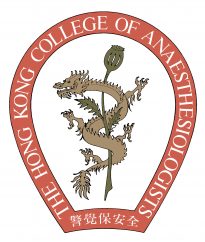Council
| President | Dr CHEE Yee Eot |
| 1st Vice President | Dr WONG Ho Shan Steven |
| 2nd Vice President | Dr CHENG Chun Pong (Benny) |
| Honorary Secretary | Dr CHAN Simon Kin Cheong |
| Honorary Treasurer | Dr CHAN Chi Wing (Timmy) |
| Assistant Secretary | Dr WONG Man Kin (Henry) |
| Assistant Treasurer | Dr SO Hang Kwong Eric |
| Immediate Past President | Dr SO Hing Yu |
| Council Members | Dr CHAN Albert Kam Ming Dr LAU Vivian Nga Man Dr LUI Frances Dr WONG Sau Ching Stanley |
| In attendance | Ms Kristy CHEUNG, Chief Executive Officer |
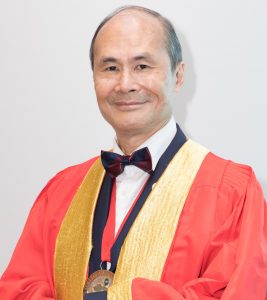 My sincere thanks to the support of all fellows and members of the college, as well as all council members, for me to have this opportunity to be President of the Hong Kong College of Anaesthesiologists. The “mission” of the college, written in the college webpage, is to ensure the quality of our specialists through training, examination, certification, continuing medical education, accreditation and other related activities. Since founded in 1989, the college has been a leader in patient safety, quality improvement and medical education. We should all be deservedly proud of those achievements. However, we are facing major changes in our society especially in the last few years. Those changes are imposing major challenges to our systems. On the other hand, insecurity could bring about a sense of urgency which may drive changes and improvements. “It was the best of time, it was the worst of time,….it was the spring of hope, it was the winter of despair.” I think we should reflect on those words of Charles Dickens in The Tales of Two Cities and see how we can make this the best of our time and our spring of hope.
My sincere thanks to the support of all fellows and members of the college, as well as all council members, for me to have this opportunity to be President of the Hong Kong College of Anaesthesiologists. The “mission” of the college, written in the college webpage, is to ensure the quality of our specialists through training, examination, certification, continuing medical education, accreditation and other related activities. Since founded in 1989, the college has been a leader in patient safety, quality improvement and medical education. We should all be deservedly proud of those achievements. However, we are facing major changes in our society especially in the last few years. Those changes are imposing major challenges to our systems. On the other hand, insecurity could bring about a sense of urgency which may drive changes and improvements. “It was the best of time, it was the worst of time,….it was the spring of hope, it was the winter of despair.” I think we should reflect on those words of Charles Dickens in The Tales of Two Cities and see how we can make this the best of our time and our spring of hope.
Dr Hing-yu SO
President
2021
Opening and Welcome
Good evening, all our distinguished guests, presidents/representatives from our partner colleges, council members, fellow anaesthesiologists, friends, new, to-be-admitted fellows of the Hong Kong College of Anaesthesiologists, and your beloved family members. Let me start by offering each of you my heartfelt congratulations.
Congratulating Graduates
Tonight is not just a celebration of passing your exams and completed your training, but is a celebration of your hard work, your sleep deprivation, your perseverance, throughout the past six years.
But mind you, conferment is never the end of a journey. It is the beginning of a lifelong career challenges; it is a transition from supervised practice to the full responsibilities of professional life as specialists in anaesthesiology.
So today, I would like to centre this welcome message around two themes that guide me through my entire career, and also the themes that speak directly to the future you are about to shape:
1. Professionalism (專業精神)
2. Sense of Crisis (行業危機感), in the era of challenging health economics and the impact of Artificial Intelligence
1st Theme: Professionalism (專業精神)
The Hong Kong Academy of Medicine (HKAM) defines professionalism through the lens of its Code of Professional Conduct, emphasizing that a physician must always exercise independent professional judgment, uphold the highest standards of conduct, and put the patient’s interests above all else.
The Meaning of Professionalism in Anaesthesiology
Two important characteristics of our work:
- Anaesthesia is often described as 70% boredom and 30% excitement.
- Much of our best work is invisible to the public. Very few patients remember our names. Many may thank their surgeons, but not the team that kept them alive.
But it is this nature of our work that demands excellence “even when nothing happens—the surgery is uneventful, and the patient is stable”.
Professionalism in the context of anaesthesiology is precisely what transforms this anonymity into strength.
Professionalism is not about recognition—it is about commitment.
Professionalism in anaesthesiology is our commitment to:
- Mastery of knowledge and craftsmanship
- Efficiency with zero compromise on quality & safety
- Ethical responsibility to our patients
- Integrity
- It is doing the right thing when no one is watching.
- It is (the courage to) speak up when something feels wrong.
- It is standing firm when patient safety is compromised—even when it is inconvenient.
5. Humanity
- Remember: You are treating a patient, not a disease.
2nd Theme: Specialty’s “Sense of Crisis” (行業危機感)
A few things are quietly brewing over the recent years:
- Escalating healthcare cost and its economic burden on healthcare system.
- Demand-supply imbalance in the number of anaesthesiologists that results in service inefficiency and frustrations by the broader healthcare system.
- Impact of A.I. in the healthcare system.
The public at large, especially the broader healthcare system, is seeking healthcare solutions to improve anaesthesia access at reduced cost. These emerging healthcare solutions, together with the impact of AI, may radically change operative anaesthesia and reshape anaesthesia delivery.
In other words, anaesthesiology is facing a looming paradigm shift driven by economic and systemic pressures. Therefore, if we, anaesthesiologists remain passive and in status quo, these emerging solutions will redefine perioperative care—potentially marginalizing our specialty.
In my humble opinion, the future belongs to those who can show added and measurable value across the entire perioperative continuum — i.e. outcome-driven and value-based practice.
Therefore, I would like to urge our new fellows:
- Shift from reactive to proactive in facing all these new challenges: Anaesthesiologists must actively shape emerging models of perioperative care rather than adhere passively to what have been shaped for you.
- Expand the perioperative footprint, especially the prehabilitation and extended postoperative care (beyond RR).
- Strengthen your digital literacy & embrace EB & data-driven practice: Fully utilise your strength in continuous monitoring and physiologic analysis as a competitive advantage.
- Invest in innovations & research: Move from descriptive to interventional studies that demonstrate measurable value in outcomes and efficiency, invest in basic science and translational research.
- Act decisively
To survive this very dynamic & challenging healthcare environment tomorrow’s anaesthetist should not simply delivering anaesthesia.
Instead, tomorrow’s anaesthetist must be:
- A perioperative physician who participates in all efforts to facilitate enhanced recovery through the entire patient journey
- Perform multimodality risk assessment as soon as surgery is contemplated, provide prehabilitation and optimization for risk mitigation well before the surgery
- Provide precision and personalised anaesthesia intraoperatively by adopting advance monitoring technology, and
- Provide extended post-anaesthesia recovery care during the most critical part of the recovery period
- A system leader who designs safer workflows and smarter protocols
- A clinician with data literacy who integrates AI tools responsibly
- A guardian of ethics and safety in an increasingly automated environment
- A patient advocate, especially when technology is misused or misunderstood
Conclusion
Tonight is a moment of celebration, and also a moment of reflection. As you step forward as specialists, you join a community built on resilience, professionalism, and an uncompromised commitment to patient care.
Once again, on behalf of the HKCA, I extend my sincere congratulations to, my respect for, and my confidence in each of you.
We look forward to the contributions you will make to the future of anaesthesia in Hong Kong.
Thank you.
| Past Presidents | Year |
|---|---|
| Dr TM MOLES | 1989-1991 |
| Prof TE OH | 1991-1993 |
| Dr Ronald LO | 1993-1995 |
| Dr HUNG Chi-Tim | 1995-1997, 1997-1999 |
| Dr LEE Tsun-Woon | 1999-2001, 2001-2003 |
| Prof Tony GIN | 2003-2005, 2005-2007 |
| Prof Michael IRWIN | 2007-2009, 2009-2011 |
| Dr Yu-fat CHOW | 2011-2013, 2013-2015 |
| Dr LIU Tak-chiu John | 2015-2017 |
| Prof CHEUNG Chi Wai | 2017-2019, 2019-2021 |
| Dr So Hing Yu | 2021-2023, 2023-2025 |
| THE FOLLOWING CANDIDATES PASSED THE PHYSIOLOGY SECTION. | THE FOLLOWING CANDIDATES PASSED THE PHARMACOLOGY SECTION. | ||
| 25 out of 43 candidates passed this section. | 22 out of 37 candidates passed this section. | ||
| NAME | PARENT HOSPITAL | NAME | PARENT HOSPITAL |
| Chan, Lok Yan | PWH | Chow, Hei Ching | QEH |
| Cheng, Johnny Chun Yin | QMH | Chu, Siu Yin | AHMLNH/NDH |
| Chow, Hei Ching | QEH | Chung, Wing Tung | UCH |
| Chow, Shing Fung Timothy | PWH | Ip, Ho Kei | PYNEH/RH |
| Chu, Lok Yee Sabrina | PYNEH/RH | Kan, Lok In | PMH |
| Chu, Siu Yin | AHMLNH/NDH | Kong, Che Him Dicken | PWH |
| Chung, Wing Tung | UCH | Kwan, Wing Sum | PWH-ICU |
| Ip, Ho Kei | PYNEH/RH | Kwok, Derrick Yukon | UCH |
| Kan, Lok In | PMH | Lai, Cheng Heng Nicholas | PWH-ICU |
| Kong, Che Him Dicken | PWH | Lam, Anson Kwun Him | KWH |
| Kwan, Wing Sum | PWH-ICU | Lam, Cherry | PWH-ICU |
| Kwok, Derrick Yukon | UCH | Lau, Cheuk Yi | PYNEH/RH |
| Lau, Cheuk Yi | PYNEH/RH | Lau, Thomas Yuk Bun | NDH-ICU |
| Lau, Thomas Yuk Bun | NDH-ICU | Law, Hei Yeung | HKCH |
| Law, Hei Yeung | HKCH | Lee, Yi Lam | UCH |
| Lee, Meng Shiuan Arrow | PYNEH-ICU | Ng, Pui Yan | YCH |
| Li, Dong Mei | QMH | Wong, Chun Hay Darren | QEH |
| Shan, Lingfeng | QEH | Wong, Ming Tsz | TMH/POH |
| Wong, Chak Ki Jack | PYNEH-ICU | Wong, Vangi Michelle | PWH |
| Wong, Chun Hay Darren | QEH | Yau, Hoi Ching Kimberly | QEH |
| Wong, Ming Tsz | TMH/POH | Yung, Sui Ting | TKOH |
| Wong, Vangi Michelle | PWH | Zhang, Yijuan | UCH |
| Yau, Hoi Ching Kimberly | QEH | ||
| Yu, Ernest Francis | PYNEH/RH | ||
| Zhang, Yijuan | UCH | ||
24 out of 44 candidates passed the examination.
The College is grateful to Dr David Fahey of ANZCA for his assistance as External Examiner during the examination.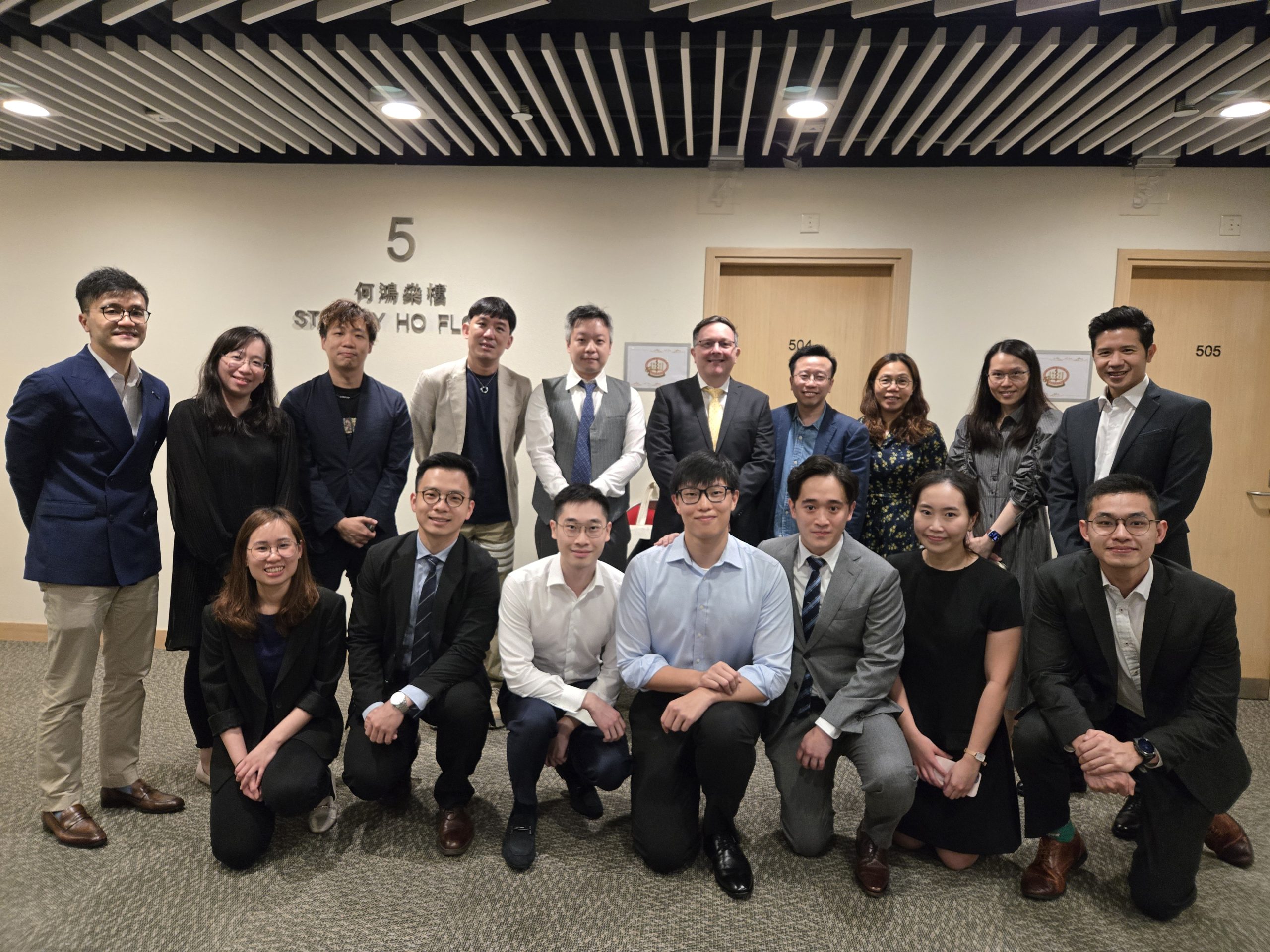
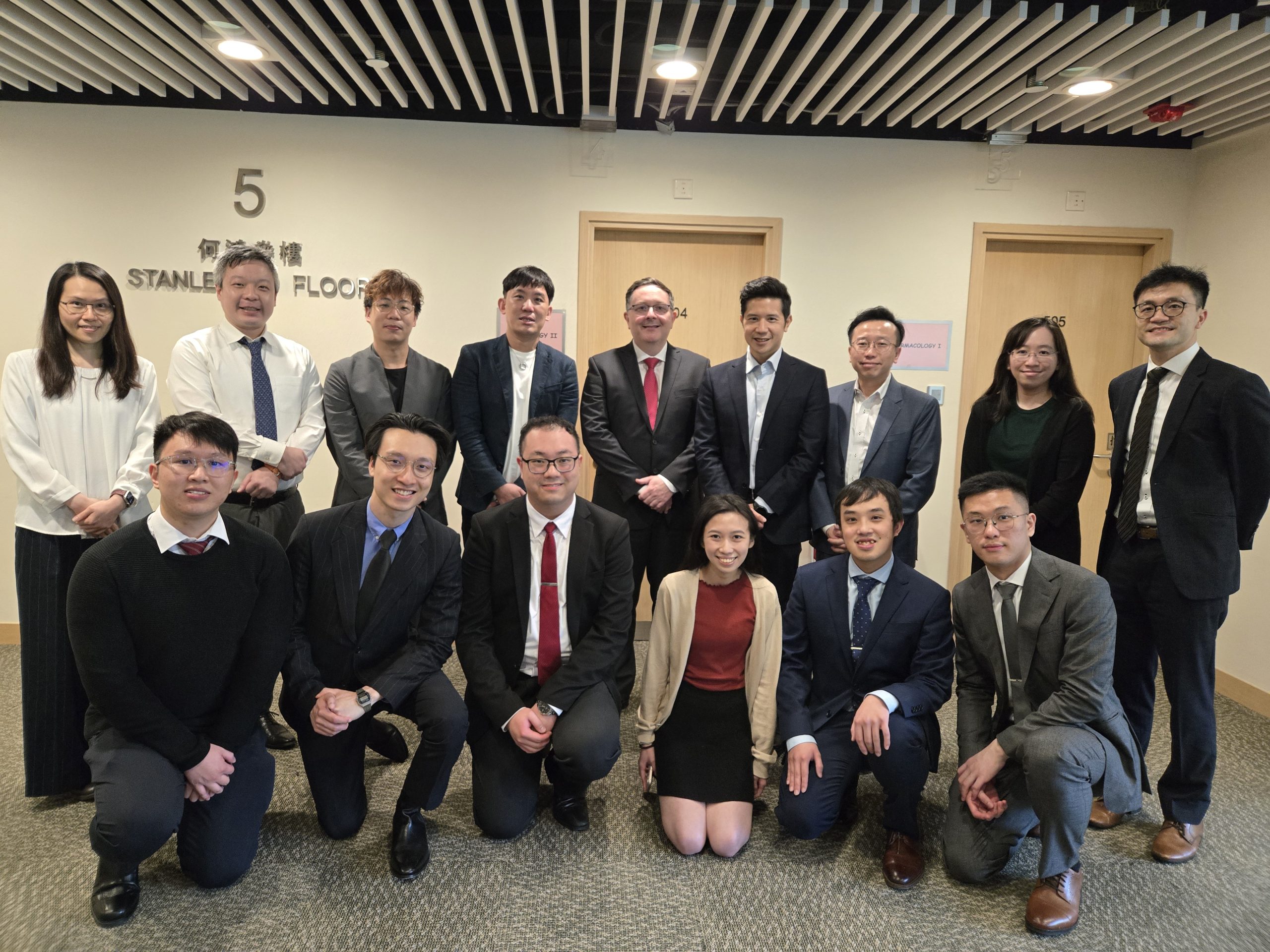
| THE FOLLOWING CANDIDATES PASSED THE PHYSIOLOGY SECTION. | THE FOLLOWING CANDIDATES PASSED THE PHARMACOLOGY SECTION. | ||
| 14 out of 30 candidates passed this section. | 20 out of 29 candidates passed this section. | ||
| NAME | PARENT HOSPITAL | NAME | PARENT HOSPITAL |
| Chan, Hoi Ching | QEH | Chan, Kai Yim | PWH |
| Chan, Kai Yim | PWH | Cheng, Johnny Chun Yin | QMH |
| Chau, Chung Yin Wilson | KWH | Chow, Shing Fung Timothy | PWH |
| Chow, Yuen Kiu | QEH | Chow, Yuen Kiu | QEH |
| Kwok, Sum Sum | TMH/POH | Chu, Lok Yee Sabrina | PYNEH/RH |
| Lam, Elvis Chak-hang | PYNEH/RH | Gomersall, Elanor Lian Mary | PWH-ICU |
| Li, Ka Ho | TMH/POH | Ip, Fung Ho | YCH |
| Mak, Man Ho | TMH/POH-ICU | Kwan, Ian Yu-Young | TMH/POH |
| Ng, Pui Yan | YCH | Kwok, Sum Sum | TMH/POH |
| See, Man Ting | TMH/POH | Lam, Elvis Chak-hang | PYNEH/RH |
| Wong, Hoi Lam Lilian | TMH/POH | Lee, Meng Shiuan Arrow | PYNEH-ICU |
| Wong, Yat Chun Kevin | AHMLNH/NDH | Li, Dong Mei | QMH |
| Wong, Yuet | QMH | Li, Ka Ho | TMH/POH |
| Yeung, Ka Ho | PWH | Mak, Man Ho | TMH/POH-ICU |
| Shan, Lingfeng | PMH/YCH-ICU | ||
| Wong, Hoi Lam Lilian | TMH/POH | ||
| Wong, Yat Chun Kevin | AHMLNH/NDH | ||
| Wong, Yuet | QMH | ||
| Yeung, Ka Ho | PWH | ||
| Yu, Ernest Francis | PYNEH/RH | ||
15 out of 32 candidates passed the examination.
The College is grateful to A/Prof. Hairil Rizal Abdullah of NUS for his assistance as External Examiner during the examination.
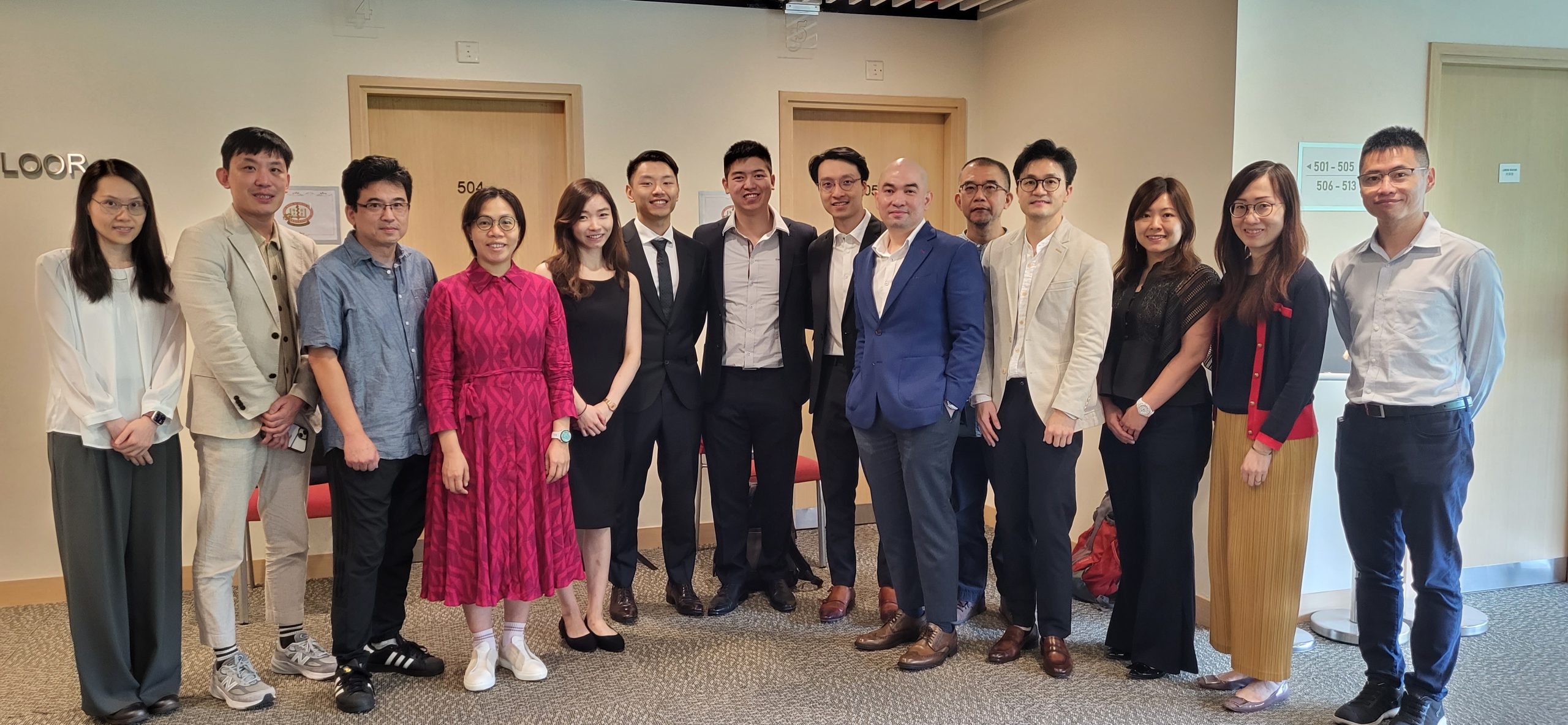
| THE FOLLOWING CANDIDATES PASSED THE PHYSIOLOGY SECTION. | THE FOLLOWING CANDIDATES PASSED THE PHARMACOLOGY SECTION. | ||
| 12 out of 24 candidates passed this section. | 13 out of 24 candidates passed this section. | ||
| NAME | PARENT HOSPITAL | NAME | PARENT HOSPITAL |
| Au, Sui Wa | NDH-ICU | Au, Sui Wa | NDH-ICU |
| Chan, Wing Ki | QMH | Chan, Hoi Ching | QEH |
| Cheung, Yuen Yung Kristie | PYNEH-ICU | Chan, Wing Ki | QMH |
| Fung, Chak Lam | AHMLNH/NDH | Chau, Chung Yin Wilson | KWH |
| Gomersall, Elanor Lian Mary | PWH-ICU | Cheung, Yuen Yung Kristie | PYNEH-ICU |
| Ho, Cheuk Hang Kevin | QEH | Fung, Chak Lam | AHMLNH/NDH |
| Ip, Fung Ho | YCH | Ho, Cheuk Hang Kevin | QEH |
| Kwok, James Chun Kan | PWH | Kwok, James Chun Kan | PWH |
| Luo, Melinda Zhao | PYNEH/RH | Luo, Melinda Zhao | PYNEH/RH |
| Nelson, Corey Andrew | NDH-ICU | See, Man Ting | TMH/POH |
| Wong, Christina Hsi-lin | PWH | Wong, Christina Hsi-lin | PWH |
| Yan, Sze Wing | PMH/YCH-ICU | Wong, Yat Sing | TMH/POH-ICU |
| Yan, Sze Wing | PMH/YCH-ICU | ||
11 out of 25 candidates passed the examination.
The College is grateful to Dr. Gary Tham of ANZCA for his assistance as External Examiner during the examination.
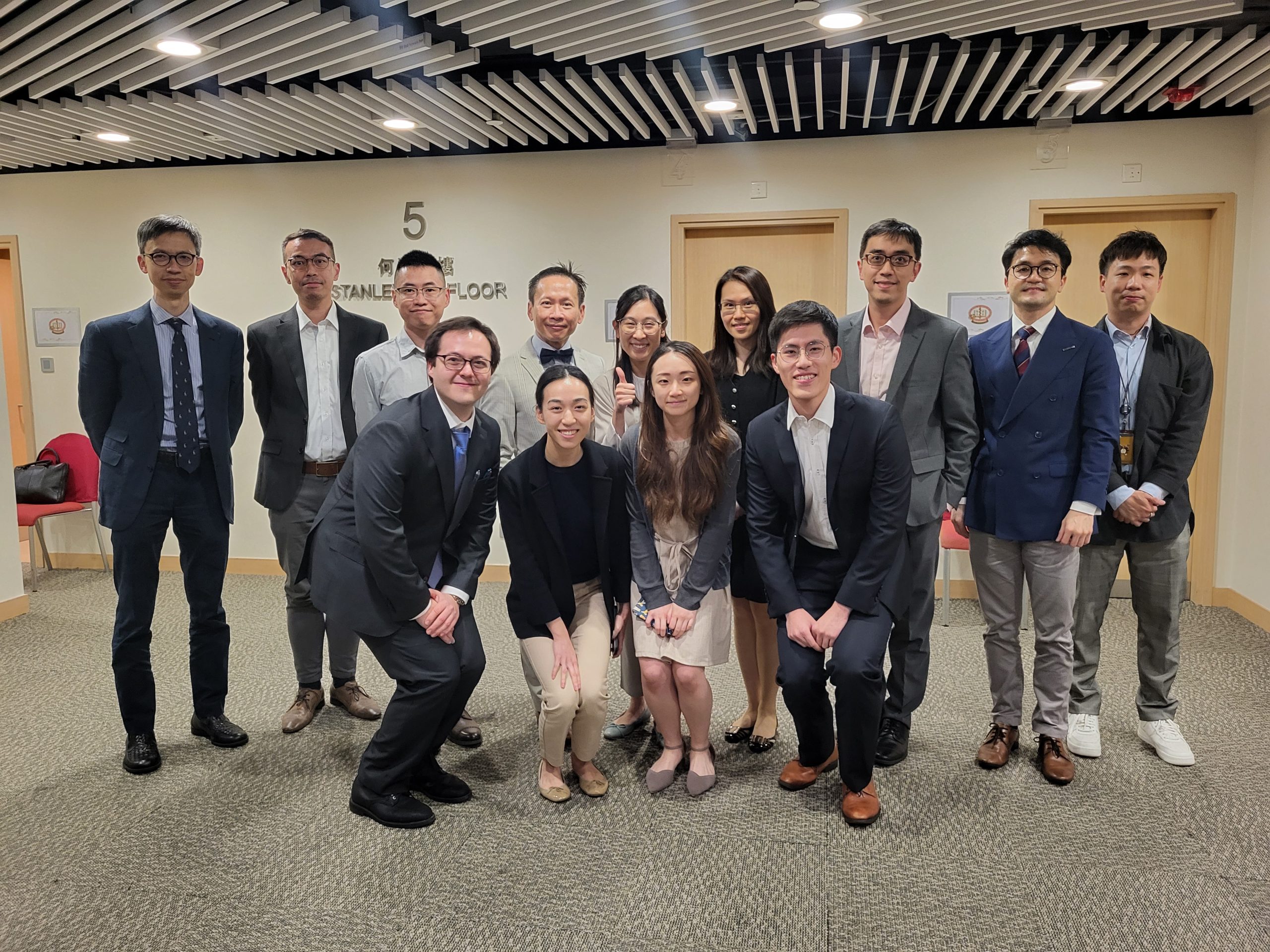
| THE FOLLOWING CANDIDATES PASSED THE PHYSIOLOGY SECTION. | THE FOLLOWING CANDIDATES PASSED THE PHARMACOLOGY SECTION. | ||
| 12 out of 17 candidates passed this section. | 9 out of 13 candidates passed this section. | ||
| NAME | PARENT HOSPITAL | NAME | PARENT HOSPITAL |
| Chan, Man Chung Matthew | TMH/POH | Chan, Man Chung Matthew | TMH/POH |
| Chan, Man Sum Sally | AHMLNH/NDH | Chan, Man Sum Sally | AHMLNH/NDH |
| Chiu, Yu Leong | TMH/POH-ICU | Chiu, Yu Leong | TMH/POH-ICU |
| Chow, Ting Hei | TMH/POH | Chu, Ki Wah Lawrence | QEH |
| Chu, Ki Wah Lawrence | QEH | Li, Ka Ho | UCH |
| Har, Ronnie Lok-hang | PWH | Nelson, Corey Andrew | NDH-ICU |
| Lam, Dorian Joshua | QEH | Ng, Chi Tat | PMH/YCH-ICU |
| Mak, Chi Cheong | QEH | Shen, Xuting | YCH |
| Ng, Benedict Siu Lung | PYNEH/RH | Yue, Man Yin | PMH/YCH-ICU |
| Ng, Chi Tat | PMH/YCH-ICU | ||
| Wong, Yat Sing | TMH/POH-ICU | ||
| Yue, Man Yin | PMH/YCH-ICU | ||
12 out of 18 candidates passed the examination.
The College is grateful to A/Prof Kwek Tong Kiat of NUS for his assistance as External Examiner during the examination.
| THE FOLLOWING CANDIDATES PASSED THE PHYSIOLOGY SECTION. | THE FOLLOWING CANDIDATES PASSED THE PHARMACOLOGY SECTION. | ||
| 12 out of 21 candidates passed this section. | 14 out of 19 candidates passed this section. | ||
| NAME | PARENT HOSPITAL | NAME | PARENT HOSPITAL |
| Ip, Hei Nga Natalie | TMH/POH | Chow, Ting Hei | TMH/POH |
| Li, Wing Sum | PWH | Har, Ronnie Lok-hang | PWH |
| Lo, Yat Ching | YCH | Ip, Hei Nga Natalie | TMH/POH |
| Pang, Lok Yee | TMH/POH | Lam, Dorian Joshua | QEH |
| Shen, Xuting | TMH/POH-ICU | Li, Wing Sum | PWH |
| Sit, King Chun | CMC | Lo, Yat Ching | YCH |
| Teng, Irving | PWH | Mak, Chi Cheong | QEH |
| Tsoi, Pak Man | AHMLNH/NDH | Pang, Lok Yee | TMH/POH |
| Wong, Ho Ching Matthew | AHMLNH/NDH | Sit, King Chun | CMC |
| Yeung, Ho Sum | PWH | Teng, Irving | PWH |
| Yeung, Ka Chun | TMH/POH | Tsoi, Pak Man | AHMLNH/NDH |
| Zhou, Niman | TMH/POH | Wong, Ho Ching Matthew | AHMLNH/NDH |
| Yeung, Ho Sum | PWH | ||
| Yeung, Ka Chun | TMH/POH | ||
11 out of 21 candidates passed the examination.
The College is grateful to Dr Ross Macpherson of ANZCA for his assistance as External Examiner during the examination.
The HKCA Intermediate Fellowship Examination Prize was awarded to Dr Teng, Irving.
The HKCA Intermediate Fellowship Examination Merit was awarded to Dr Yeung, Ho Sum.
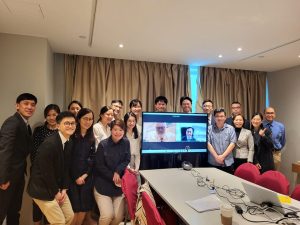
| THE FOLLOWING CANDIDATES PASSED THE PHYSIOLOGY SECTION. | THE FOLLOWING CANDIDATES PASSED THE PHARMACOLOGY SECTION. | ||
| 8 out of 16 candidates passed this section. | 16 out of 21 candidates passed this section. | ||
| NAME | PARENT HOSPITAL | NAME | PARENT HOSPITAL |
| Chan, Chun Wai | UCH | Chan, Chun Wai | UCH |
| Ip, Patricia Kit Ying | HKCH | Chu, Chun Kwok | TKOH |
| Kot, Thompson Ka Ming | PMH | Chu, Ho Yin | TMH/POH |
| Li, Calston Lorin | AHMLNH/NDH | Chui, Sin Yee Janet | TMH/POH |
| Wong, Regan Wing Kwan | QMH-DCA | Ip, Patricia Kit Ying | HKCH |
| Wong, Tin Wan | AHMLNH/NDH | Kot, Thompson Ka Ming | PMH |
| Yao, Jingling | NDH-ICU | Leung, Ngai Sze Elsie | PMH/YCH-ICU |
| Yeung, Nok Man | UCH | Leung, Pak Hung | TMH/POH-ICU |
| Li, Calston Lorin | AHMLNH/NDH | ||
| Mak, Sze Wai | TMH/POH | ||
| Ng, Benedict Siu Lung | PYNEH/RH | ||
| Tan, Yin Kwan Adrian | QEH | ||
| Wong, Regan Wing Kwan | QMH-DCA | ||
| Wong, Tin Wan | AHMLNH/NDH | ||
| Yao, Jingling | NDH-ICU | ||
| Zhou, Niman | TMH/POH | ||
14 out of 22 candidates passed the examination.
The College is grateful to Dr Ross Macpherson of ANZCA for his assistance as External Examiner during the examination.
The HKCA Intermediate Fellowship Examination Prize was awarded to Dr Ip, Patricia Kit Ying.
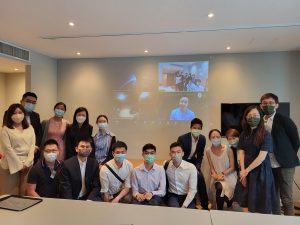
| THE FOLLOWING CANDIDATES PASSED THE PHYSIOLOGY SECTION. | THE FOLLOWING CANDIDATES PASSED THE PHARMACOLOGY SECTION. | ||
| 21 out of 25 candidates passed this section. | 17 out of 26 candidates passed this section. | ||
| NAME | PARENT HOSPITAL | NAME | PARENT HOSPITAL |
| Chan, Pak Hei Tristan | TKOH | Chan, Pak Hei Tristan | TKOH |
| Chan, Yee Ting | PMH | Chan, Yee Ting | PMH |
| Chang, Shan Yi Erica | KWH | Chang, Shan Yi Erica | KWH |
| Chu, Chun Kwok | TKOH | Li, Chun Kiu | KWH |
| Chu, Ho Yin | TMH/POH | Ho, Hiu Tung | QEH-ICU |
| Chui, Sin Yee Janet | TMH/POH | Ho, Hung Pan | QEH |
| Ho, Hiu Tung | QEH-ICU | Lee, Hong Yung Arthur | PMH/YCH-ICU |
| Hoi, Yeung Yan Stacie | PWH | Hoi, Yeung Yan Stacie | PWH |
| Kwong, Chung Man Denis | HKCH | Kwong, Chung Man Denis | HKCH |
| Lam, Cheuk Yan | UCH | Lam, Cheuk Yan | UCH |
| Leung, Ngai Sze Elsie | PMH/YCH-ICU | Lui, Nga Chit | PWH |
| Leung, Pak Hung | TMH/POH-ICU | Muzaffar, Almas | PMH/YCH-ICU |
| Lui, Nga Chit | PWH | Poon, Yick Chun Jason | AHMLNH/NDH |
| Muzaffar, Almas | PMH/YCH-ICU | Poon, Yin Ki | PWH |
| Oh, Young Joo | KWH | Wong, Hon Hin | QEH |
| Poon, Yick Chun Jason | AHMLNH/NDH | Wu, Sze Nok | TMH/POH-ICU |
| Poon, Yin Ki | PWH | Yu, Jessica Jiexi | KWH |
| Tan, Yin Kwan Adrian | QEH | ||
| Wong, Hon Hin | QEH | ||
| Wu, Sze Nok | TMH/POH-ICU | ||
| Yu, Jessica Jiexi | KWH | ||
18 out of 28 candidates passed the examination.
The HKCA Intermediate Fellowship Examination Prize was awarded to Dr Poon, Yin Ki.
The HKCA Intermediate Fellowship Examination Merit was awarded to Dr Yu, Jessica Jiexi.
| THE FOLLOWING CANDIDATES PASSED THE PHYSIOLOGY SECTION. | THE FOLLOWING CANDIDATES PASSED THE PHARMACOLOGY SECTION. | ||
| 16 out of 27 candidates passed this section. | 14 out of 26 candidates passed this section. | ||
| NAME | PARENT HOSPITAL | NAME | PARENT HOSPITAL |
| Wong, Kit Ming | TWH | Wong, Kit Ming | TWH |
| Chan, Kai Chun | QEH | Chan, Kai Chun | QEH |
| Lam, Sharon | QMH-DCA | Lam, Sharon | QMH-DCA |
| Mang, Wing Yan | PYNEH/RH | Mang, Wing Yan | PYNEH/RH |
| Yu, Siu Chung | YCH | Yu, Siu Chung | YCH |
| Ho, Hung Pan | QEH | Lai, Yik Leung | PMH |
| Lai, Yik Leung | PMH | Qi, Yu | PMH/YCH-ICU |
| Qi, Yu | PMH/YCH-ICU | Wong, Ho Yi | PMH |
| Wong, Ho Yi | PMH | Chan, Ting Kong | AHMLNH/NDH |
| Chan, Ting Kong | AHMLNH/NDH | Oh, Young Joo | KWH |
| Li, Chun Kiu | KWH | Wong, Amanda Hin Ting | TMH/POH |
| Wong, Amanda Hin Ting | TMH/POH | Tse, Yan Che | TMH/POH |
| Leung, Chee Fai Andy | TMH/POH | Cheung, Yui Lam Karis | HKBH |
| Tse, Yan Che | TMH/POH | Leung, Wan Ching | AHMLNH/NDH |
| Cheung, Yui Lam Karis | HKBH | ||
| Leung, Wan Ching | AHMLNH/NDH | ||
14 out of 28 candidates passed the examination.
The HKCA Intermediate Fellowship Examination Prize was awarded to Dr Mang, Wing Yan.
| THE FOLLOWING CANDIDATES PASSED THE PHYSIOLOGY SECTION. | THE FOLLOWING CANDIDATES PASSED THE PHARMACOLOGY SECTION. | ||
| 21 out of 27 candidates passed this section. | 19 out of 24 candidates passed this section. | ||
| NAME | PARENT HOSPITAL | NAME | PARENT HOSPITAL |
| Chan, Adrienne Ho Ting | PWH | Chan, Adrienne Ho Ting | PWH |
| Chan, Brian Chun Yuan | QMH | Chan, Hoi Yan | PWH |
| Chan, Hoi Yan | PWH | Cheung, Ting Yan Christina | QMH |
| Cheung, Ting Yan Christina | QMH | Fong, Chun Yuen | QMH |
| Fong, Chun Yuen | QMH | Ho, Gregory Ignatius Chun-Long | TMH/POH-ICU |
| Ho, Gregory Ignatius Chun-Long | TMH/POH-ICU | Hung, Chui Yee | AHMLNH/NDH |
| Ho, Po Lai | TMH/POH | Ip, Yiu Chung Jeffrey | HKCH |
| Hung, Chui Yee | AHMLNH/NDH | Lee, Lam | AHMLNH/NDH |
| Ip, Yiu Chung Jeffrey | HKCH | Ma, Hoi Ling | UCH |
| Lee, Hong Yung Arthur | PMH/YCH-ICU | Mak, Hoi Ying Stephenie | PWH |
| Lee, Lam | AHMLNH/NDH | Mak, Ngo Tung | CMC |
| Leung, Shuen Hei Eunice | TKOH | Qiu, Qiu | QMH |
| Ma, Hoi Ling | UCH | Tang, Chi Chun | PWH |
| Mak, Hoi Ying Stephenie | PWH | Wang, William Hansen | QMH |
| Mak, Ngo Tung | CMC | Wong, Miu Chi | PMH |
| Tang, Chi Chun | PWH | Yeung, Nok Man | UCH |
| Wai, Lok Kiu | DKCH | Yu, Wai Hung | PWH-ICU |
| Wang, William Hansen | QMH | Yuen, Lok Yan Louisa | PMH |
| Wong, Miu Chi | PMH | Yuen, Rosetta | QEH |
| Yu, Wai Hung | PWH-ICU | ||
| Yuen, Rosetta | QEH | ||
22 out of 29 candidates passed the examination.
The HKCA Intermediate Fellowship Examination Prize was awarded to Dr Tang, Chi Chun.
The HKCA Intermediate Fellowship Examination Merit was awarded to Dr Chan, Adrienne Ho Ting, Dr Mak, Ngo Tung and Dr Yu, Wai Hung.
| THE FOLLOWING CANDIDATES PASSED THE PHYSIOLOGY SECTION. | THE FOLLOWING CANDIDATES PASSED THE PHARMACOLOGY SECTION. | ||
| 15 out of 24 candidates passed this section. | 20 out of 26 candidates passed this section. | ||
| NAME | PARENT HOSPITAL | NAME | PARENT HOSPITAL |
| Chan, Wai Ho | TMH/POH-ICU | Chan, Brian Chun Yuan | QMH |
| Cheng, Vicky Wing Kei | QMH | Chan, Kwan Dik Claud | UCH |
| Chow, Kei Yan | TMH/POH-ICU | Chan, Wai Ho | TMH/POH-ICU |
| Ho, Hing Shing | QEH | Ho, Hing Shing | QEH |
| Kwong, Ka Woon Calvin | PWH | Ho, Po Lai | TMH/POH |
| Leung, Wing Hei | QEH | Kwong, Ka Woon Calvin | PWH |
| Li, Lok Yin | PMH/YCH-ICU | Lai, Shun Yan Sherri | QEH |
| Liu, Chun Ying Janice | PYNEH/RH | Leong, Tak Kei | PMH/YCH-ICU |
| Lo, Kai Ming | UCH | Leung, Chee Fai Andy | TMH/POH |
| Lui, Ho Kwan | QEH | Leung, Wing Hei | QEH |
| Tang, Suet Chung Lawson | PMH | Li, Lok Yin | PMH/YCH-ICU |
| Tong, Yee Kay Stephanie | QEH | Liu, Chun Ying Janice | PYNEH/RH |
| Wai, Ho Harrison | TMH | Lo, Kai Ming | UCH |
| Yau, Justine Marie Jing May | UCH | Lui, Ho Kwan | QEH |
| Yuen, Lok Yan Louisa | PMH | Siu, Chung Yan Vivian | KWH |
| Tang, Suet Chung Lawson | PMH | ||
| Tong, Yee Kay Stephanie | QEH | ||
| Wai, Ho Harrison | TMH | ||
| Wai, Lok Kiu | DKCH | ||
Cohort A: 18 out of 28 candidates passed the examination.
The HKCA Intermediate Fellowship Examination Prize was awarded to Dr Liu, Chun Ying Janice.
The HKCA Intermediate Fellowship Examination Merit was awarded to Dr Kwong, Ka Woon Calvin
| THE FOLLOWING CANDIDATES PASSED THE PHYSIOLOGY SECTION. | THE FOLLOWING CANDIDATES PASSED THE PHARMACOLOGY SECTION. | ||
| 14 out of 26 candidates passed this section. | 14 out of 26 candidates passed this section. | ||
| NAME | PARENT HOSPITAL | NAME | PARENT HOSPITAL |
| Chan, Chak Chi | TMH/POH | Chan, Chak Chi | TMH/POH |
| Cheung, Lam Chi | QEH | Cheung, Lam Chi | QEH |
| Ho, Samantha Sze Man | PWH-ICU | Ho, Samantha Sze Man | PWH-ICU |
| Ho, Yu Hin Kenneth | QEH | Ho, Yu Hin Kenneth | QEH |
| Hui, Chi Kit | AHMLNH/NDH | Hui, Chi Kit | AHMLNH/NDH |
| Lau, Swan | PYNEH-ICU | Lau, Swan | PYNEH-ICU |
| Liu, Calvin Tsun Wai | QEH | Leung, Shuen Hei Eunice | TKOH |
| Liu, Ka Wai | PMH/YCH-ICU | Liu, Calvin Tsun Wai | QEH |
| Pang, Chun Kit | TKOH | Liu, Ka Wai | PMH/YCH-ICU |
| Qiu, Qiu | QMH | Pang, Chun Kit | TKOH |
| Wong, Chuk Kwan Edith | PYNEH/RH | Wong, Chuk Kwan Edith | PYNEH/RH |
| Wong, Wai Lun | TMH/POH | Wong, Wai Lun | TMH/POH |
| Wong, Wan Yue | UCH | Wong, Wan Yue | UCH |
| Zhang, Ming | PMH/YCH-ICU | Zhang, Ming | PMH/YCH-ICU |
Cohort B: 13 out of 26 candidates passed the examination.
| The following candidates passed the Physiology section. | The following candidates passed the Pharmacology section. | ||||
| 15 out of 25 candidates passed this section. | 16 out of 28 candidates passed this section. | ||||
| Name | Current Hospital | Parent Hospital | Name | Current Hospital | Parent Hospital |
| Chan, Kwan Dik Claud | UCH | UCH | Cheng, Gareth Chun Heng | KWH | KWH |
| Cheng, Gareth Chun Heng | KWH | KWH | Chu, Bak Hei Raymond | PWH | PMH |
| Choo, Ming Yin Wilson | KWH | KWH | Chung, Eric Yu Sum | UCH | UCH |
| Chu, Bak Hei Raymond | PWH | PMH | Ho, Lap Tin | NDH-ICU | NDH-ICU |
| Chung, Eric Yu Sum | UCH | UCH | Lai, Hon Yee | TMH | CMC |
| Hau, Melanie | QEH | QEH | Lau, Jennifer | TMH | TMH/POH |
| Lai, Hon Yee | TMH | CMC | Lee, Tien Seng Bryan | PMH | PMH |
| Lau, Jennifer | TMH | TMH/POH | Leung, Wing Yiu | NDH | PWH |
| Lee, Tien Seng Bryan | PMH | PMH | Li, Pui Ling | CMC | PMH |
| Leong, Tak Kei | PMH | PMH/YCH-ICU | Liu, Katherine | PYNEH | QMH |
| Leung, Wing Yiu | NDH | PWH | Mak, Ho Yan Queenie | PMH | PMH |
| Mak, Tik Man | NDH | PWH | Mak, Tik Man | NDH | PWH |
| Ngan, Heung Pui | TMH | TMH/POH-ICU | Ngan, Heung Pui | TMH | TMH/POH-ICU |
| Wong, Shun Yu | QMH | QMH | Wong, Shun Yu | QMH | QMH |
| Yip, Hoi Chun | QEH | QEH | Wong, Yin Kwan Gabriel | NDH | AHMLNH/NDH |
| Yip, Hoi Chun | QEH | QEH | |||
14 out of 30 candidates passed the examination.
The College is grateful to Dr James Derrick of ANZCA for his assistance as External Examiner during the examination.
The HKCA Intermediate Fellowship Examination Prize was awarded to Dr Mak, Tik Man.
The HKCA Intermediate Fellowship Examination Merit was awarded to Chung, Eric Yu Sum.
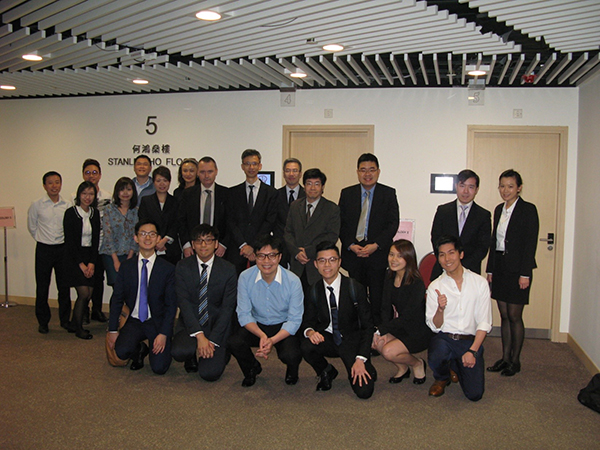
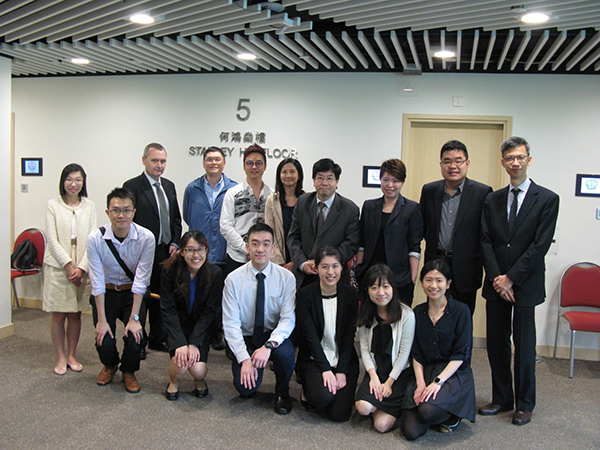
| The following candidates passed the Physiology section. | The following candidates passed the Pharmacology section. | ||||
| 14 out of 22 candidates passed this section. | 13 out of 23 candidates passed this section. | ||||
| Name | Current Hospital | Parent Hospital | Name | Current Hospital | Parent Hospital |
| Chan, Kai Wai Kevin | KWH | QEH | Chan, Kai Wai Kevin | KWH | QEH |
| Cheung, Hei Lok Emmanuel | QEH | QEH | Cheng, Vicky Wing Kei | PYNEH | QMH |
| Chun, Wing Ting Christine | NDH | NDH | Cheung, Hei Lok Emmanuel | QEH | QEH |
| Ho, Lap Tin | PWH | NDH | Chow, Kei Yan | TMH | TMH |
| Lai, Shun Yan Sherri | QEH | QEH | Chun, Wing Ting Christine | NDH | NDH |
| Lau, Hon Wai | TMH | PWH | Hau, Melanie | QEH | QEH |
| Lee, Christopher Pak-To | PWH | PWH | Lau, Hon Wai | TMH | PWH |
| Li, Chui Ting | PYNEH | PWH | Lee, Christopher Pak-To | PWH | PWH |
| Li, Hoi Ki Katy | PWH | PWH | Li, Chui Ting | PYNEH | PWH |
| Mak, Ho Yan Queenie | YCH | PMH | Li, Hoi Ki Katy | PWH | PWH |
| So, Hiu Yi Christina | PWH | PWH | So, Hiu Yi Christina | PWH | PWH |
| Tang, Esther | PWH | PWH | Tang, Esther | PWH | PWH |
| Wong, Yin Kwan Gabriel | NDH | NDH | Yuen, Ka Wai Tammy | PYNEH | PYNEH |
| Yuen, Ka Wai Tammy | PYNEH | PYNEH | |||
14 out of 26 candidates passed the examination.
The College is grateful to Dr Tay, Kwang Hui of NUS and Dr Chris Sadler of RCoA for their assistance as External Examiner during the examination.
The HKCA Intermediate Fellowship Examination Prize was awarded to Dr Lee, Christopher Pak-To.
The HKCA Intermediate Fellowship Examination Merit was awarded to Dr Chan, Kai Wai Kevin, Dr Lau, Hon Wai and Dr Li, Chui Ting.
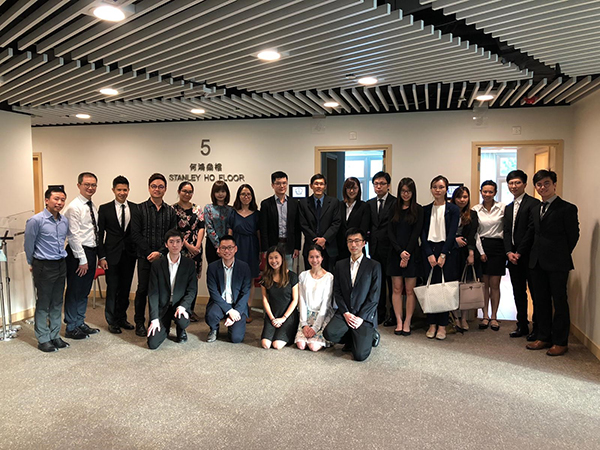
| The following candidates passed the Physiology section. | The following candidates passed the Pharmacology section. | ||||
| 9 out of 21 candidates passed this section. | 10 out of 25 candidates passed this section. | ||||
| Name | Current Hospital | Parent Hospital | Name | Current Hospital | Parent Hospital |
| Chan, Anyon | TMH | TMH/POH | Chan, Anyon | TMH | TMH/POH |
| Choi, Yuen Ling Janice | KWH | KWH | Chan, Shing Him | TMH | QMH |
| Fung, Ka Yan Gabriel | QMH | QMH | Fung, Ka Yi | NDH | PWH |
| Fung, Ka Yi | NDH | PWH | Kwok, Tsz Kiu | PMH | PMH |
| Kwok, Tsz Kiu | PMH | PMH | Lai, Chun Yin | UCH | UCH |
| Lai, Chun Yin | UCH | UCH | Lee, Lawrence Ka Kit | PYNEH | PYNEH |
| Lee, Lawrence Ka Kit | PYNEH | PYNEH | Lee, Wing Fung Ralph | TMH | AHMLNH/NDH |
| Tang, Tsz Wai Sherry | NDH | AHMLNH/NDH | Leung, Ka Yan Katherine | QEH | QEH |
| Yeung, Siu Kay Keith | QEH | QEH | Tang, Tsz Wai Sherry | NDH | AHMLNH/NDH |
| Yeung, Siu Kay Keith | QEH | QEH | |||
10 out of 25 candidates passed the examination.
The College is grateful to Dr Emma Giles of ANZCA for her assistance as External Examiner during the examination.
The Prize of the Intermediate Fellowship Examination was awarded to Dr Fung, Ka Yi.
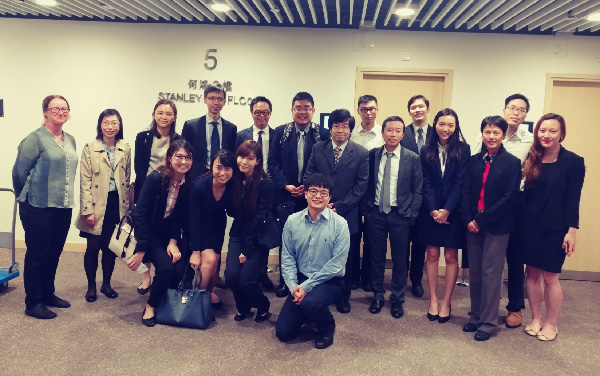
| The following candidates passed the Physiology section. | The following candidates passed the Pharmacology section. | ||||
| 16 out of 33 candidates passed this section. | 16 out of 36 candidates passed this section. | ||||
| Name | Current Hospital | Parent Hospital | Name | Current Hospital | Parent Hospital |
| Chan, Chin Pang | TMH | TMH/POH | Chan, Chin Pang | TMH | TMH/POH |
| Chan, Hau Yin | TMH | TMH/POH | Chan, Hau Yin | TMH | TMH/POH |
| Chan, Ka Ho | NDH | TMH/POH-ICU | Chan, Ka Ho | NDH | TMH/POH-ICU |
| Chan, Yan Hei | PYNEH | PYNEH-ICU | Chan, Yi Fung Eva | PYNEH | QMH |
| Ching, Rosemary Hin Nga | QEH | QEH | Ching, Rosemary Hin Nga | QEH | QEH |
| Ko, Ching Jane | QMH | DKCH | Choi, Yuen Ling Janice | UCH | KWH |
| Kwok, Sin Ming | PMH | PMH | Choo, Ming Yin Wilson | UCH | UCH |
| Lai, Pui Ching Joyce | QMH | QMH | Fung, Ka Yan Gabriel | QMH | QMH |
| Li, Kin Chio | PYNEH | PYNEH-ICU | Ko, Ching Jane | QMH | DKCH |
| Li, Pui Ling | TMH | PMH | Kwok, Sin Ming | PMH | PMH |
| Liu, Katherine | QMH | QMH | Lai, Pui Ching Joyce | QMH | QMH |
| Siu, Chung Yan Vivian | QEH | KWH | Li, Kin Chio | PYNEH | PYNEH-ICU |
| Tong, Samuel | QEH | QEH | Tong, Samuel | QEH | QEH |
| Wong, Kwok To | UCH | UCH | Wong, Kwok To | UCH | UCH |
| Wong, Pui Yan | PYNEH | PYNEH/RH | Wong, Pui Yan | PYNEH | PYNEH/RH |
| Wu, Ho Chun Stephen | PYNEH | PYNEH/RH | Wu, Ho Chun Stephen | PYNEH | PYNEH/RH |
15 out of 36 candidates passed the examination.
The College is grateful to Prof Kwek Tong Kiat of NUS and Dr Nicola Snook of RCoA for their assistance as External Examiner during the examination.
The Prize of the Intermediate Fellowship Examination was awarded to Dr Wong, Pui Yan.
The Merit of the Intermediate Fellowship Examination was awarded Dr Kwok, Sin Ming, Dr Ko, Ching Jane and Dr Wu, Ho Chun Stephen.
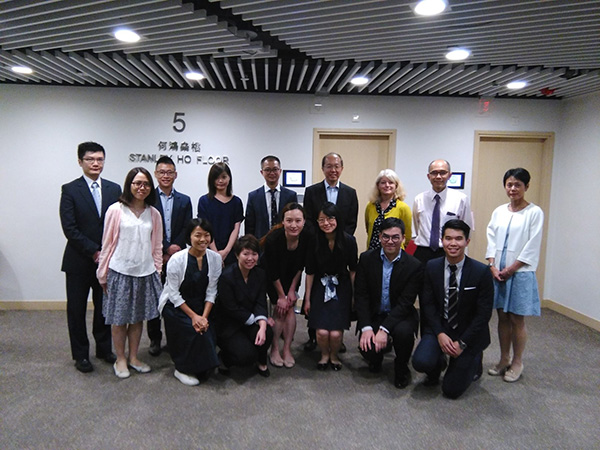
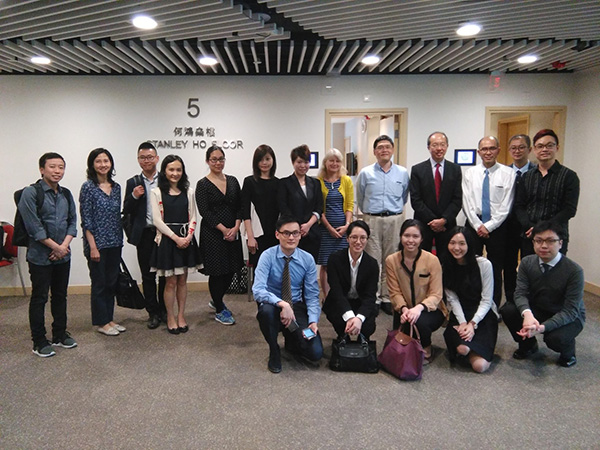
| The following candidates passed the Physiology section. | The following candidates passed the Pharmacology section. | ||||
| 9 out of 21 candidates passed this section. | 10 out of 25 candidates passed this section. | ||||
| Name | Current Hospital | Parent Hospital | Name | Current Hospital | Parent Hospital |
| Chan, Chin Chin | NDH | TMH/POH | Chan, Ka Lee | QEH-ICU | QEH-ICU |
| Chan, Ka Lee | QEH-ICU | QEH-ICU | Chong, Ka Man | PYNEH | PYNEH |
| Chan, Man Ting | TMH | CMC | Fong, Chor Yiu | TMH | AHMLNH/NDH |
| Chong, Ka Man | PYNEH | PYNEH | Fung, Pui Lam Polly | NDH | PWH |
| Fung, Pui Lam Polly | NDH | PWH | Kurtz, Moritz Sebastian | UCH | UCH |
| Kurtz, Moritz Sebastian | UCH | UCH | Lai, Ka Po | QEH | QEH |
| Lai, Ka Po | QEH | QEH | Lam, Sung Lai Geoffrey | NDH-ICU | NDH-ICU |
| Lam, Sung Lai Geoffrey | NDH-ICU | NDH-ICU | Lam, Sze Hei | UCH | UCH |
| Lam, Sze Hei | UCH | UCH | Lee, Kin Ho Aaron | PYNEH | QMH-DCA |
| Lee, Kin Ho Aaron | PYNEH | QMH-DCA | Leung, Yin Ting Andrew | PYNEH | TMH/POH |
| Leung, Yin Ting Andrew | PYNEH | TMH/POH | Tang, Grace Sze Man | PYNEH | PWH |
| Wong, Ka Ming | TMH | TMH/POH | Tsang, Ka Yan | PMH | TMH/POH |
| Wu, Ping | TMH-ICU | TMH/POH-ICU | Tsui, Tan Hun Justin | PMH | QEH |
| Yang, Xianyi Timothy | QEH | QEH | Wong, Man Chi | UCH | UCH |
| Yu, Wing Hay | PYNEH | PYNEH | Wu, Ping | TMH-ICU | TMH/POH-ICU |
| Yang, Xianyi Timothy | QEH | QEH | |||
18 out of 28 candidates passed the examination.
The College is grateful to Associate Prof Ross MacPherson of ANZCA for his assistance as the external examiner during the examination.
The Prize of the Intermediate Fellowship Examination was awarded to Dr Wu, Ping.
The Merit of the Intermediate Fellowship Examination was awarded to Chan, Ka Lee, Dr Fung, Pui Lam Polly and Lam, Sze Hei.
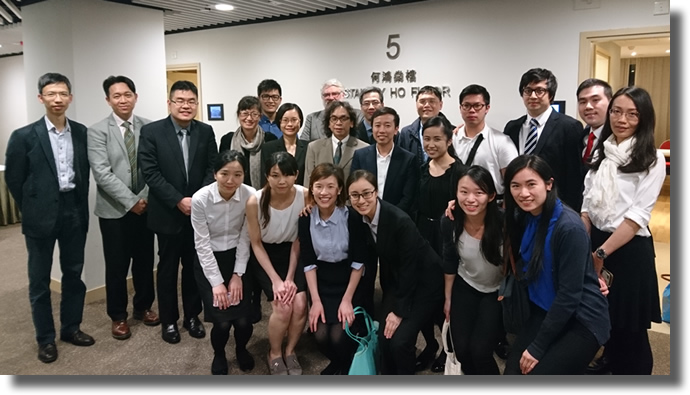
| The following candidates passed the Physiology section. | The following candidates passed the Pharmacology section. | ||||
| 18 out of 27 candidates passed this section. | 16 out of 36 candidates passed this section. | ||||
| Name | Current Hospital | Parent Hospital | Name | Current Hospital | Parent Hospital |
| Chan, Shing Him | TMH | QMH | Chan, Man Ting | DCA, QMH | CMC |
| Chan, Yi Fung Eva | PYNEH | QMH | Chan, Yin Shui Jennifer | TMH | TMH |
| Chan, Yin Shui Jennifer | TMH | TMH | Cheung, Tik Sang | QEH | PMH |
| Cheung, Tik Sang | QEH | PMH | Hui, Yuet Man | TKOH | TKOH |
| Hui, Yuet Man | TKOH | TKOH | Lam, So Ying | TMH | TMH |
| Lam, So Ying | TMH | TMH | Lam, Ting Ho Andrew | QEH | QEH |
| Lam, Ting Ho Andrew | QEH | QEH | Ling, Loni | QEH | UCH |
| Lee, Wing Fung Ralph | TMH | NDH | Liu, Chee Yuen Dexter | UCH | UCH |
| Leung, Ka Yan Katherine | QEH | QEH | Mak, Chui Yan | TMH | TMH |
| Ling, Loni | QEH | UCH | Pun, Ming Tsz | POH | TMH |
| Liu, Chee Yuen Dexter | UCH | UCH | Siu, Ming Kit Benjamin | PWH | PWH |
| Mak, Chui Yan | TMH | TMH | Tam, Suet Yee | PWH | PWH |
| Pun, Ming Tsz | POH | TMH | Tang, Sin Lau | QEH | QEH |
| Siu, Ming Kit Benjamin | PWH | PWH | Wong, Ka Ming | POH | TMH |
| Tam, Suet Yee | PWH | PWH | Wong, Siu Lun | PWH | PWH |
| Tang, Sin Lau | QEH | QEH | Yeung, Siu Lun Louis | UCH | QEH |
| Wong, Siu Lun | PWH | PWH | |||
| Yeung, Siu Lun Louis | UCH | QEH | |||
16 out of 29 candidates passed the examination.
The College is grateful to Associate Professor Kwek Tong Kiat of NUS and Dr Tom Pierce of RCoA for their assistance as External Examiners during the examination.
The Prize of the Intermediate Fellowship Examination was awarded to Dr Tam, Suet Yee.


| The following candidates passed the Physiology section. | The following candidates passed the Pharmacology section. | ||||
| 7 out of 14 candidates passed this section. | 8 out of 14 candidates passed this section. | ||||
| Name | Current Hospital | Parent Hospital | Name | Current Hospital | Parent Hospital |
| Lau, Yuen Ting | NDH | NDH | Lau, Yuen Ting | NDH | NDH |
| Lo, Po Yu | PWH | PWH | Wong, Chung Pak | QEH | QEH |
| Wong, Chung Pak | QEH | QEH | Yeung, Joanne Tsui Ting | TMH | TMH/POH |
| Yeung, Joanne Tsui Ting | TMH | TMH/POH | Chan, Tak Hei Manson | QEH | QEH |
| Chan, Tak Hei Manson | QEH | QEH | Wong, Wing Lam | NDH | TMH/POH |
| Lau, Yue Ho Vincent | PMH-ICU | PMH/YCH-ICU | Chan, Natalie Christine | PWH | PYNEH |
| Chu, Wai Hon | TMH | QMH | Lau, Yue Ho Vincent | PYNEH | PMH/YCH-ICU |
| Chu, Wai Hon | TMH | QMH | |||
8 out of 14 candidates passed the examination.
The College is grateful to Dr Andrew Gardner of ANZCA for his assistance assistance as External Examiners during the examination.
The Prize of the Intermediate Fellowship Examination was awarded to Dr Wong, Chung Pak.
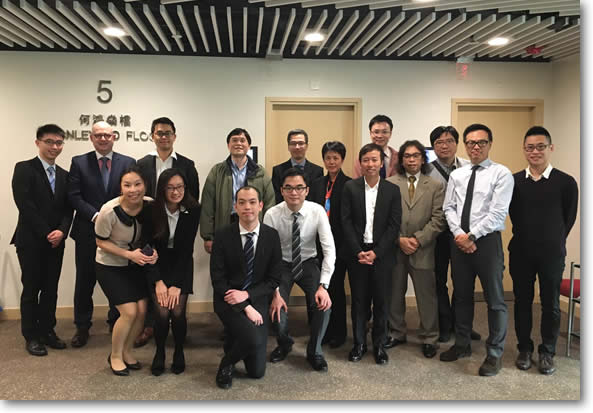
| The following candidates passed the Physiology section. | The following candidates passed the Pharmacology section. | ||||
| 16 out of 25 candidates passed this section. | 14 out of 17 candidates passed this section. | ||||
| Name | Current Hospital | Parent Hospital | Name | Current Hospital | Parent Hospital |
| Cheng, Yuen Ling | YCH | PMH-ICU | Chan, Chin Chin | TMH | TMH/POH |
| Cheung, Yuen Ting Vivian | QMH | PYNEH | Cheng, Yuen Ling | YCH | PMH -ICU |
| Fong, Chor Yiu | TMH-ICU | NDH | Cheung, Yuen Ting Vivian | QMH | PYNEH |
| Kwan, Pui Yan | UCH | TMH/POH | Kwan, Pui Yan | UCH | TMH/POH |
| Ng, Chi Wai | TMH | TMH-ICU | Lau, Yiu Chung | QMH-ICU | QMH |
| Ng, Lok Yan | PWH | PWH | Lo, Po Yu | PWH | PWH |
| Ng, Siu Yuen | NDH | NDH | Ng, Chi Wai | TMH | TMH -ICU |
| Tang, Grace Sze Man | PMH | PWH | Ng, Lok Yan | PWH | PWH |
| Tong, Yick Man Jasmin | NDH | PWH | Ng, Siu Yuen | NDH | NDH |
| Tsang, Hing Yan Teresa | PYNEH | PWH | Tong, Yick Man Jasmin | NDH | PWH |
| Tsang, Ka Yan | TMH | TMH/POH | Tsang, Hing Yan Teresa | PYNEH | PWH |
| Tsui, Tan Hun Justin | PMH | QEH | Wong, Tak Kin | TMH | UCH |
| Wong, Man Chi | QEH | UCH | Yau, Kwok Chung | NDH | TMH/POH |
| Wong, Tak Kin | TMH | UCH | Yim, Rebecca Ling Hay | PYNEH | QMH |
| Yau, Kwok Chung | NDH | TMH/POH | |||
| Yim, Rebecca Ling Hay | PYNEH | QMH | |||
13 out of 27 candidates passed the examination.
The College is grateful to Dr Mark Thomas of RCoA and Dr Nian-Chih Hwang of NUS for their assistance as External Examiners during the examination.
The Prize of the Intermediate Fellowship Examination was awarded to Dr Tsang, Hing Yan Teresa.
The Merit of the Intermediate Fellowship Examination was awarded to Dr Dr Cheung, Yuen Ting Vivian and Dr Ng, Chi Wai.

| THE FOLLOWING CANDIDATES PASSED THE PHYSIOLOGY SECTION. | THE FOLLOWING CANDIDATES PASSED THE PHARMACOLOGY SECTION. | ||
| 25 out of 43 candidates passed this section. | 22 out of 37 candidates passed this section. | ||
| NAME | PARENT HOSPITAL | NAME | PARENT HOSPITAL |
| Chan, Lok Yan | PWH | Chow, Hei Ching | QEH |
| Cheng, Johnny Chun Yin | QMH | Chu, Siu Yin | AHMLNH/NDH |
| Chow, Hei Ching | QEH | Chung, Wing Tung | UCH |
| Chow, Shing Fung Timothy | PWH | Ip, Ho Kei | PYNEH/RH |
| Chu, Lok Yee Sabrina | PYNEH/RH | Kan, Lok In | PMH |
| Chu, Siu Yin | AHMLNH/NDH | Kong, Che Him Dicken | PWH |
| Chung, Wing Tung | UCH | Kwan, Wing Sum | PWH-ICU |
| Ip, Ho Kei | PYNEH/RH | Kwok, Derrick Yukon | UCH |
| Kan, Lok In | PMH | Lai, Cheng Heng Nicholas | PWH-ICU |
| Kong, Che Him Dicken | PWH | Lam, Anson Kwun Him | KWH |
| Kwan, Wing Sum | PWH-ICU | Lam, Cherry | PWH-ICU |
| Kwok, Derrick Yukon | UCH | Lau, Cheuk Yi | PYNEH/RH |
| Lau, Cheuk Yi | PYNEH/RH | Lau, Thomas Yuk Bun | NDH-ICU |
| Lau, Thomas Yuk Bun | NDH-ICU | Law, Hei Yeung | HKCH |
| Law, Hei Yeung | HKCH | Lee, Yi Lam | UCH |
| Lee, Meng Shiuan Arrow | PYNEH-ICU | Ng, Pui Yan | YCH |
| Li, Dong Mei | QMH | Wong, Chun Hay Darren | QEH |
| Shan, Lingfeng | QEH | Wong, Ming Tsz | TMH/POH |
| Wong, Chak Ki Jack | PYNEH-ICU | Wong, Vangi Michelle | PWH |
| Wong, Chun Hay Darren | QEH | Yau, Hoi Ching Kimberly | QEH |
| Wong, Ming Tsz | TMH/POH | Yung, Sui Ting | TKOH |
| Wong, Vangi Michelle | PWH | Zhang, Yijuan | UCH |
| Yau, Hoi Ching Kimberly | QEH | ||
| Yu, Ernest Francis | PYNEH/RH | ||
| Zhang, Yijuan | UCH | ||
24 out of 44 candidates passed the examination.
The College is grateful to Dr David Fahey of ANZCA for his assistance as External Examiner during the examination.

| THE FOLLOWING CANDIDATES PASSED THE PHYSIOLOGY SECTION. | THE FOLLOWING CANDIDATES PASSED THE PHARMACOLOGY SECTION. | ||
| 14 out of 30 candidates passed this section. | 20 out of 29 candidates passed this section. | ||
| NAME | PARENT HOSPITAL | NAME | PARENT HOSPITAL |
| Chan, Hoi Ching | QEH | Chan, Kai Yim | PWH |
| Chan, Kai Yim | PWH | Cheng, Johnny Chun Yin | QMH |
| Chau, Chung Yin Wilson | KWH | Chow, Shing Fung Timothy | PWH |
| Chow, Yuen Kiu | QEH | Chow, Yuen Kiu | QEH |
| Kwok, Sum Sum | TMH/POH | Chu, Lok Yee Sabrina | PYNEH/RH |
| Lam, Elvis Chak-hang | PYNEH/RH | Gomersall, Elanor Lian Mary | PWH-ICU |
| Li, Ka Ho | TMH/POH | Ip, Fung Ho | YCH |
| Mak, Man Ho | TMH/POH-ICU | Kwan, Ian Yu-Young | TMH/POH |
| Ng, Pui Yan | YCH | Kwok, Sum Sum | TMH/POH |
| See, Man Ting | TMH/POH | Lam, Elvis Chak-hang | PYNEH/RH |
| Wong, Hoi Lam Lilian | TMH/POH | Lee, Meng Shiuan Arrow | PYNEH-ICU |
| Wong, Yat Chun Kevin | AHMLNH/NDH | Li, Dong Mei | QMH |
| Wong, Yuet | QMH | Li, Ka Ho | TMH/POH |
| Yeung, Ka Ho | PWH | Mak, Man Ho | TMH/POH-ICU |
| Shan, Lingfeng | PMH/YCH-ICU | ||
| Wong, Hoi Lam Lilian | TMH/POH | ||
| Wong, Yat Chun Kevin | AHMLNH/NDH | ||
| Wong, Yuet | QMH | ||
| Yeung, Ka Ho | PWH | ||
| Yu, Ernest Francis | PYNEH/RH | ||
15 out of 32 candidates passed the examination.
The College is grateful to A/Prof. Hairil Rizal Abdullah of NUS for his assistance as External Examiner during the examination.

| THE FOLLOWING CANDIDATES PASSED THE PHYSIOLOGY SECTION. | THE FOLLOWING CANDIDATES PASSED THE PHARMACOLOGY SECTION. | ||
| 12 out of 24 candidates passed this section. | 13 out of 24 candidates passed this section. | ||
| NAME | PARENT HOSPITAL | NAME | PARENT HOSPITAL |
| Au, Sui Wa | NDH-ICU | Au, Sui Wa | NDH-ICU |
| Chan, Wing Ki | QMH | Chan, Hoi Ching | QEH |
| Cheung, Yuen Yung Kristie | PYNEH-ICU | Chan, Wing Ki | QMH |
| Fung, Chak Lam | AHMLNH/NDH | Chau, Chung Yin Wilson | KWH |
| Gomersall, Elanor Lian Mary | PWH-ICU | Cheung, Yuen Yung Kristie | PYNEH-ICU |
| Ho, Cheuk Hang Kevin | QEH | Fung, Chak Lam | AHMLNH/NDH |
| Ip, Fung Ho | YCH | Ho, Cheuk Hang Kevin | QEH |
| Kwok, James Chun Kan | PWH | Kwok, James Chun Kan | PWH |
| Luo, Melinda Zhao | PYNEH/RH | Luo, Melinda Zhao | PYNEH/RH |
| Nelson, Corey Andrew | NDH-ICU | See, Man Ting | TMH/POH |
| Wong, Christina Hsi-lin | PWH | Wong, Christina Hsi-lin | PWH |
| Yan, Sze Wing | PMH/YCH-ICU | Wong, Yat Sing | TMH/POH-ICU |
| Yan, Sze Wing | PMH/YCH-ICU | ||
11 out of 25 candidates passed the examination.
The College is grateful to Dr. Gary Tham of ANZCA for his assistance as External Examiner during the examination.

| THE FOLLOWING CANDIDATES PASSED THE PHYSIOLOGY SECTION. | THE FOLLOWING CANDIDATES PASSED THE PHARMACOLOGY SECTION. | ||
| 12 out of 17 candidates passed this section. | 9 out of 13 candidates passed this section. | ||
| NAME | PARENT HOSPITAL | NAME | PARENT HOSPITAL |
| Chan, Man Chung Matthew | TMH/POH | Chan, Man Chung Matthew | TMH/POH |
| Chan, Man Sum Sally | AHMLNH/NDH | Chan, Man Sum Sally | AHMLNH/NDH |
| Chiu, Yu Leong | TMH/POH-ICU | Chiu, Yu Leong | TMH/POH-ICU |
| Chow, Ting Hei | TMH/POH | Chu, Ki Wah Lawrence | QEH |
| Chu, Ki Wah Lawrence | QEH | Li, Ka Ho | UCH |
| Har, Ronnie Lok-hang | PWH | Nelson, Corey Andrew | NDH-ICU |
| Lam, Dorian Joshua | QEH | Ng, Chi Tat | PMH/YCH-ICU |
| Mak, Chi Cheong | QEH | Shen, Xuting | YCH |
| Ng, Benedict Siu Lung | PYNEH/RH | Yue, Man Yin | PMH/YCH-ICU |
| Ng, Chi Tat | PMH/YCH-ICU | ||
| Wong, Yat Sing | TMH/POH-ICU | ||
| Yue, Man Yin | PMH/YCH-ICU | ||
12 out of 18 candidates passed the examination.
The College is grateful to A/Prof Kwek Tong Kiat of NUS for his assistance as External Examiner during the examination.
| THE FOLLOWING CANDIDATES PASSED THE PHYSIOLOGY SECTION. | THE FOLLOWING CANDIDATES PASSED THE PHARMACOLOGY SECTION. | ||
| 12 out of 21 candidates passed this section. | 14 out of 19 candidates passed this section. | ||
| NAME | PARENT HOSPITAL | NAME | PARENT HOSPITAL |
| Ip, Hei Nga Natalie | TMH/POH | Chow, Ting Hei | TMH/POH |
| Li, Wing Sum | PWH | Har, Ronnie Lok-hang | PWH |
| Lo, Yat Ching | YCH | Ip, Hei Nga Natalie | TMH/POH |
| Pang, Lok Yee | TMH/POH | Lam, Dorian Joshua | QEH |
| Shen, Xuting | TMH/POH-ICU | Li, Wing Sum | PWH |
| Sit, King Chun | CMC | Lo, Yat Ching | YCH |
| Teng, Irving | PWH | Mak, Chi Cheong | QEH |
| Tsoi, Pak Man | AHMLNH/NDH | Pang, Lok Yee | TMH/POH |
| Wong, Ho Ching Matthew | AHMLNH/NDH | Sit, King Chun | CMC |
| Yeung, Ho Sum | PWH | Teng, Irving | PWH |
| Yeung, Ka Chun | TMH/POH | Tsoi, Pak Man | AHMLNH/NDH |
| Zhou, Niman | TMH/POH | Wong, Ho Ching Matthew | AHMLNH/NDH |
| Yeung, Ho Sum | PWH | ||
| Yeung, Ka Chun | TMH/POH | ||
11 out of 21 candidates passed the examination.
The College is grateful to Dr Ross Macpherson of ANZCA for his assistance as External Examiner during the examination.
The HKCA Intermediate Fellowship Examination Prize was awarded to Dr Teng, Irving.
The HKCA Intermediate Fellowship Examination Merit was awarded to Dr Yeung, Ho Sum.

| THE FOLLOWING CANDIDATES PASSED THE PHYSIOLOGY SECTION. | THE FOLLOWING CANDIDATES PASSED THE PHARMACOLOGY SECTION. | ||
| 8 out of 16 candidates passed this section. | 16 out of 21 candidates passed this section. | ||
| NAME | PARENT HOSPITAL | NAME | PARENT HOSPITAL |
| Chan, Chun Wai | UCH | Chan, Chun Wai | UCH |
| Ip, Patricia Kit Ying | HKCH | Chu, Chun Kwok | TKOH |
| Kot, Thompson Ka Ming | PMH | Chu, Ho Yin | TMH/POH |
| Li, Calston Lorin | AHMLNH/NDH | Chui, Sin Yee Janet | TMH/POH |
| Wong, Regan Wing Kwan | QMH-DCA | Ip, Patricia Kit Ying | HKCH |
| Wong, Tin Wan | AHMLNH/NDH | Kot, Thompson Ka Ming | PMH |
| Yao, Jingling | NDH-ICU | Leung, Ngai Sze Elsie | PMH/YCH-ICU |
| Yeung, Nok Man | UCH | Leung, Pak Hung | TMH/POH-ICU |
| Li, Calston Lorin | AHMLNH/NDH | ||
| Mak, Sze Wai | TMH/POH | ||
| Ng, Benedict Siu Lung | PYNEH/RH | ||
| Tan, Yin Kwan Adrian | QEH | ||
| Wong, Regan Wing Kwan | QMH-DCA | ||
| Wong, Tin Wan | AHMLNH/NDH | ||
| Yao, Jingling | NDH-ICU | ||
| Zhou, Niman | TMH/POH | ||
14 out of 22 candidates passed the examination.
The College is grateful to Dr Ross Macpherson of ANZCA for his assistance as External Examiner during the examination.
The HKCA Intermediate Fellowship Examination Prize was awarded to Dr Ip, Patricia Kit Ying.

| THE FOLLOWING CANDIDATES PASSED THE PHYSIOLOGY SECTION. | THE FOLLOWING CANDIDATES PASSED THE PHARMACOLOGY SECTION. | ||
| 21 out of 25 candidates passed this section. | 17 out of 26 candidates passed this section. | ||
| NAME | PARENT HOSPITAL | NAME | PARENT HOSPITAL |
| Chan, Pak Hei Tristan | TKOH | Chan, Pak Hei Tristan | TKOH |
| Chan, Yee Ting | PMH | Chan, Yee Ting | PMH |
| Chang, Shan Yi Erica | KWH | Chang, Shan Yi Erica | KWH |
| Chu, Chun Kwok | TKOH | Li, Chun Kiu | KWH |
| Chu, Ho Yin | TMH/POH | Ho, Hiu Tung | QEH-ICU |
| Chui, Sin Yee Janet | TMH/POH | Ho, Hung Pan | QEH |
| Ho, Hiu Tung | QEH-ICU | Lee, Hong Yung Arthur | PMH/YCH-ICU |
| Hoi, Yeung Yan Stacie | PWH | Hoi, Yeung Yan Stacie | PWH |
| Kwong, Chung Man Denis | HKCH | Kwong, Chung Man Denis | HKCH |
| Lam, Cheuk Yan | UCH | Lam, Cheuk Yan | UCH |
| Leung, Ngai Sze Elsie | PMH/YCH-ICU | Lui, Nga Chit | PWH |
| Leung, Pak Hung | TMH/POH-ICU | Muzaffar, Almas | PMH/YCH-ICU |
| Lui, Nga Chit | PWH | Poon, Yick Chun Jason | AHMLNH/NDH |
| Muzaffar, Almas | PMH/YCH-ICU | Poon, Yin Ki | PWH |
| Oh, Young Joo | KWH | Wong, Hon Hin | QEH |
| Poon, Yick Chun Jason | AHMLNH/NDH | Wu, Sze Nok | TMH/POH-ICU |
| Poon, Yin Ki | PWH | Yu, Jessica Jiexi | KWH |
| Tan, Yin Kwan Adrian | QEH | ||
| Wong, Hon Hin | QEH | ||
| Wu, Sze Nok | TMH/POH-ICU | ||
| Yu, Jessica Jiexi | KWH | ||
18 out of 28 candidates passed the examination.
The HKCA Intermediate Fellowship Examination Prize was awarded to Dr Poon, Yin Ki.
The HKCA Intermediate Fellowship Examination Merit was awarded to Dr Yu, Jessica Jiexi.
| THE FOLLOWING CANDIDATES PASSED THE PHYSIOLOGY SECTION. | THE FOLLOWING CANDIDATES PASSED THE PHARMACOLOGY SECTION. | ||
| 16 out of 27 candidates passed this section. | 14 out of 26 candidates passed this section. | ||
| NAME | PARENT HOSPITAL | NAME | PARENT HOSPITAL |
| Wong, Kit Ming | TWH | Wong, Kit Ming | TWH |
| Chan, Kai Chun | QEH | Chan, Kai Chun | QEH |
| Lam, Sharon | QMH-DCA | Lam, Sharon | QMH-DCA |
| Mang, Wing Yan | PYNEH/RH | Mang, Wing Yan | PYNEH/RH |
| Yu, Siu Chung | YCH | Yu, Siu Chung | YCH |
| Ho, Hung Pan | QEH | Lai, Yik Leung | PMH |
| Lai, Yik Leung | PMH | Qi, Yu | PMH/YCH-ICU |
| Qi, Yu | PMH/YCH-ICU | Wong, Ho Yi | PMH |
| Wong, Ho Yi | PMH | Chan, Ting Kong | AHMLNH/NDH |
| Chan, Ting Kong | AHMLNH/NDH | Oh, Young Joo | KWH |
| Li, Chun Kiu | KWH | Wong, Amanda Hin Ting | TMH/POH |
| Wong, Amanda Hin Ting | TMH/POH | Tse, Yan Che | TMH/POH |
| Leung, Chee Fai Andy | TMH/POH | Cheung, Yui Lam Karis | HKBH |
| Tse, Yan Che | TMH/POH | Leung, Wan Ching | AHMLNH/NDH |
| Cheung, Yui Lam Karis | HKBH | ||
| Leung, Wan Ching | AHMLNH/NDH | ||
14 out of 28 candidates passed the examination.
The HKCA Intermediate Fellowship Examination Prize was awarded to Dr Mang, Wing Yan.
| THE FOLLOWING CANDIDATES PASSED THE PHYSIOLOGY SECTION. | THE FOLLOWING CANDIDATES PASSED THE PHARMACOLOGY SECTION. | ||
| 21 out of 27 candidates passed this section. | 19 out of 24 candidates passed this section. | ||
| NAME | PARENT HOSPITAL | NAME | PARENT HOSPITAL |
| Chan, Adrienne Ho Ting | PWH | Chan, Adrienne Ho Ting | PWH |
| Chan, Brian Chun Yuan | QMH | Chan, Hoi Yan | PWH |
| Chan, Hoi Yan | PWH | Cheung, Ting Yan Christina | QMH |
| Cheung, Ting Yan Christina | QMH | Fong, Chun Yuen | QMH |
| Fong, Chun Yuen | QMH | Ho, Gregory Ignatius Chun-Long | TMH/POH-ICU |
| Ho, Gregory Ignatius Chun-Long | TMH/POH-ICU | Hung, Chui Yee | AHMLNH/NDH |
| Ho, Po Lai | TMH/POH | Ip, Yiu Chung Jeffrey | HKCH |
| Hung, Chui Yee | AHMLNH/NDH | Lee, Lam | AHMLNH/NDH |
| Ip, Yiu Chung Jeffrey | HKCH | Ma, Hoi Ling | UCH |
| Lee, Hong Yung Arthur | PMH/YCH-ICU | Mak, Hoi Ying Stephenie | PWH |
| Lee, Lam | AHMLNH/NDH | Mak, Ngo Tung | CMC |
| Leung, Shuen Hei Eunice | TKOH | Qiu, Qiu | QMH |
| Ma, Hoi Ling | UCH | Tang, Chi Chun | PWH |
| Mak, Hoi Ying Stephenie | PWH | Wang, William Hansen | QMH |
| Mak, Ngo Tung | CMC | Wong, Miu Chi | PMH |
| Tang, Chi Chun | PWH | Yeung, Nok Man | UCH |
| Wai, Lok Kiu | DKCH | Yu, Wai Hung | PWH-ICU |
| Wang, William Hansen | QMH | Yuen, Lok Yan Louisa | PMH |
| Wong, Miu Chi | PMH | Yuen, Rosetta | QEH |
| Yu, Wai Hung | PWH-ICU | ||
| Yuen, Rosetta | QEH | ||
22 out of 29 candidates passed the examination.
The HKCA Intermediate Fellowship Examination Prize was awarded to Dr Tang, Chi Chun.
The HKCA Intermediate Fellowship Examination Merit was awarded to Dr Chan, Adrienne Ho Ting, Dr Mak, Ngo Tung and Dr Yu, Wai Hung.
| THE FOLLOWING CANDIDATES PASSED THE PHYSIOLOGY SECTION. | THE FOLLOWING CANDIDATES PASSED THE PHARMACOLOGY SECTION. | ||
| 15 out of 24 candidates passed this section. | 20 out of 26 candidates passed this section. | ||
| NAME | PARENT HOSPITAL | NAME | PARENT HOSPITAL |
| Chan, Wai Ho | TMH/POH-ICU | Chan, Brian Chun Yuan | QMH |
| Cheng, Vicky Wing Kei | QMH | Chan, Kwan Dik Claud | UCH |
| Chow, Kei Yan | TMH/POH-ICU | Chan, Wai Ho | TMH/POH-ICU |
| Ho, Hing Shing | QEH | Ho, Hing Shing | QEH |
| Kwong, Ka Woon Calvin | PWH | Ho, Po Lai | TMH/POH |
| Leung, Wing Hei | QEH | Kwong, Ka Woon Calvin | PWH |
| Li, Lok Yin | PMH/YCH-ICU | Lai, Shun Yan Sherri | QEH |
| Liu, Chun Ying Janice | PYNEH/RH | Leong, Tak Kei | PMH/YCH-ICU |
| Lo, Kai Ming | UCH | Leung, Chee Fai Andy | TMH/POH |
| Lui, Ho Kwan | QEH | Leung, Wing Hei | QEH |
| Tang, Suet Chung Lawson | PMH | Li, Lok Yin | PMH/YCH-ICU |
| Tong, Yee Kay Stephanie | QEH | Liu, Chun Ying Janice | PYNEH/RH |
| Wai, Ho Harrison | TMH | Lo, Kai Ming | UCH |
| Yau, Justine Marie Jing May | UCH | Lui, Ho Kwan | QEH |
| Yuen, Lok Yan Louisa | PMH | Siu, Chung Yan Vivian | KWH |
| Tang, Suet Chung Lawson | PMH | ||
| Tong, Yee Kay Stephanie | QEH | ||
| Wai, Ho Harrison | TMH | ||
| Wai, Lok Kiu | DKCH | ||
Cohort A: 18 out of 28 candidates passed the examination. The HKCA Intermediate Fellowship Examination Prize was awarded to Dr Liu, Chun Ying Janice. The HKCA Intermediate Fellowship Examination Merit was awarded to Dr Kwong, Ka Woon Calvin
| THE FOLLOWING CANDIDATES PASSED THE PHYSIOLOGY SECTION. | THE FOLLOWING CANDIDATES PASSED THE PHARMACOLOGY SECTION. | ||
| 14 out of 26 candidates passed this section. | 14 out of 26 candidates passed this section. | ||
| NAME | PARENT HOSPITAL | NAME | PARENT HOSPITAL |
| Chan, Chak Chi | TMH/POH | Chan, Chak Chi | TMH/POH |
| Cheung, Lam Chi | QEH | Cheung, Lam Chi | QEH |
| Ho, Samantha Sze Man | PWH-ICU | Ho, Samantha Sze Man | PWH-ICU |
| Ho, Yu Hin Kenneth | QEH | Ho, Yu Hin Kenneth | QEH |
| Hui, Chi Kit | AHMLNH/NDH | Hui, Chi Kit | AHMLNH/NDH |
| Lau, Swan | PYNEH-ICU | Lau, Swan | PYNEH-ICU |
| Liu, Calvin Tsun Wai | QEH | Leung, Shuen Hei Eunice | TKOH |
| Liu, Ka Wai | PMH/YCH-ICU | Liu, Calvin Tsun Wai | QEH |
| Pang, Chun Kit | TKOH | Liu, Ka Wai | PMH/YCH-ICU |
| Qiu, Qiu | QMH | Pang, Chun Kit | TKOH |
| Wong, Chuk Kwan Edith | PYNEH/RH | Wong, Chuk Kwan Edith | PYNEH/RH |
| Wong, Wai Lun | TMH/POH | Wong, Wai Lun | TMH/POH |
| Wong, Wan Yue | UCH | Wong, Wan Yue | UCH |
| Zhang, Ming | PMH/YCH-ICU | Zhang, Ming | PMH/YCH-ICU |
| The following candidates passed the Physiology section. | The following candidates passed the Pharmacology section. | ||||
| 15 out of 25 candidates passed this section. | 16 out of 28 candidates passed this section. | ||||
| Name | Current Hospital | Parent Hospital | Name | Current Hospital | Parent Hospital |
| Chan, Kwan Dik Claud | UCH | UCH | Cheng, Gareth Chun Heng | KWH | KWH |
| Cheng, Gareth Chun Heng | KWH | KWH | Chu, Bak Hei Raymond | PWH | PMH |
| Choo, Ming Yin Wilson | KWH | KWH | Chung, Eric Yu Sum | UCH | UCH |
| Chu, Bak Hei Raymond | PWH | PMH | Ho, Lap Tin | NDH-ICU | NDH-ICU |
| Chung, Eric Yu Sum | UCH | UCH | Lai, Hon Yee | TMH | CMC |
| Hau, Melanie | QEH | QEH | Lau, Jennifer | TMH | TMH/POH |
| Lai, Hon Yee | TMH | CMC | Lee, Tien Seng Bryan | PMH | PMH |
| Lau, Jennifer | TMH | TMH/POH | Leung, Wing Yiu | NDH | PWH |
| Lee, Tien Seng Bryan | PMH | PMH | Li, Pui Ling | CMC | PMH |
| Leong, Tak Kei | PMH | PMH/YCH-ICU | Liu, Katherine | PYNEH | QMH |
| Leung, Wing Yiu | NDH | PWH | Mak, Ho Yan Queenie | PMH | PMH |
| Mak, Tik Man | NDH | PWH | Mak, Tik Man | NDH | PWH |
| Ngan, Heung Pui | TMH | TMH/POH-ICU | Ngan, Heung Pui | TMH | TMH/POH-ICU |
| Wong, Shun Yu | QMH | QMH | Wong, Shun Yu | QMH | QMH |
| Yip, Hoi Chun | QEH | QEH | Wong, Yin Kwan Gabriel | NDH | AHMLNH/NDH |
| Yip, Hoi Chun | QEH | QEH | |||
14 out of 30 candidates passed the examination.
The College is grateful to Dr James Derrick of ANZCA for his assistance as External Examiner during the examination.
The HKCA Intermediate Fellowship Examination Prize was awarded to Dr Mak, Tik Man.
The HKCA Intermediate Fellowship Examination Merit was awarded to Chung, Eric Yu Sum.


| The following candidates passed the Physiology section. | The following candidates passed the Pharmacology section. | ||||
| 14 out of 22 candidates passed this section. | 13 out of 23 candidates passed this section. | ||||
| Name | Current Hospital | Parent Hospital | Name | Current Hospital | Parent Hospital |
| Chan, Kai Wai Kevin | KWH | QEH | Chan, Kai Wai Kevin | KWH | QEH |
| Cheung, Hei Lok Emmanuel | QEH | QEH | Cheng, Vicky Wing Kei | PYNEH | QMH |
| Chun, Wing Ting Christine | NDH | NDH | Cheung, Hei Lok Emmanuel | QEH | QEH |
| Ho, Lap Tin | PWH | NDH | Chow, Kei Yan | TMH | TMH |
| Lai, Shun Yan Sherri | QEH | QEH | Chun, Wing Ting Christine | NDH | NDH |
| Lau, Hon Wai | TMH | PWH | Hau, Melanie | QEH | QEH |
| Lee, Christopher Pak-To | PWH | PWH | Lau, Hon Wai | TMH | PWH |
| Li, Chui Ting | PYNEH | PWH | Lee, Christopher Pak-To | PWH | PWH |
| Li, Hoi Ki Katy | PWH | PWH | Li, Chui Ting | PYNEH | PWH |
| Mak, Ho Yan Queenie | YCH | PMH | Li, Hoi Ki Katy | PWH | PWH |
| So, Hiu Yi Christina | PWH | PWH | So, Hiu Yi Christina | PWH | PWH |
| Tang, Esther | PWH | PWH | Tang, Esther | PWH | PWH |
| Wong, Yin Kwan Gabriel | NDH | NDH | Yuen, Ka Wai Tammy | PYNEH | PYNEH |
| Yuen, Ka Wai Tammy | PYNEH | PYNEH | |||
14 out of 26 candidates passed the examination.
The College is grateful to Dr Tay, Kwang Hui of NUS and Dr Chris Sadler of RCoA for their assistance as External Examiner during the examination.
The HKCA Intermediate Fellowship Examination Prize was awarded to Dr Lee, Christopher Pak-To.
The HKCA Intermediate Fellowship Examination Merit was awarded to Dr Chan, Kai Wai Kevin, Dr Lau, Hon Wai and Dr Li, Chui Ting.

| The following candidates passed the Physiology section. | The following candidates passed the Pharmacology section. | ||||
| 9 out of 21 candidates passed this section. | 10 out of 25 candidates passed this section. | ||||
| Name | Current Hospital | Parent Hospital | Name | Current Hospital | Parent Hospital |
| Chan, Anyon | TMH | TMH/POH | Chan, Anyon | TMH | TMH/POH |
| Choi, Yuen Ling Janice | KWH | KWH | Chan, Shing Him | TMH | QMH |
| Fung, Ka Yan Gabriel | QMH | QMH | Fung, Ka Yi | NDH | PWH |
| Fung, Ka Yi | NDH | PWH | Kwok, Tsz Kiu | PMH | PMH |
| Kwok, Tsz Kiu | PMH | PMH | Lai, Chun Yin | UCH | UCH |
| Lai, Chun Yin | UCH | UCH | Lee, Lawrence Ka Kit | PYNEH | PYNEH |
| Lee, Lawrence Ka Kit | PYNEH | PYNEH | Lee, Wing Fung Ralph | TMH | AHMLNH/NDH |
| Tang, Tsz Wai Sherry | NDH | AHMLNH/NDH | Leung, Ka Yan Katherine | QEH | QEH |
| Yeung, Siu Kay Keith | QEH | QEH | Tang, Tsz Wai Sherry | NDH | AHMLNH/NDH |
| Yeung, Siu Kay Keith | QEH | QEH | |||
10 out of 25 candidates passed the examination.
The College is grateful to Dr Emma Giles of ANZCA for her assistance as External Examiner during the examination.
The Prize of the Intermediate Fellowship Examination was awarded to Dr Fung, Ka Yi.

| The following candidates passed the Physiology section. | The following candidates passed the Pharmacology section. | ||||
| 16 out of 33 candidates passed this section. | 16 out of 36 candidates passed this section. | ||||
| Name | Current Hospital | Parent Hospital | Name | Current Hospital | Parent Hospital |
| Chan, Chin Pang | TMH | TMH/POH | Chan, Chin Pang | TMH | TMH/POH |
| Chan, Hau Yin | TMH | TMH/POH | Chan, Hau Yin | TMH | TMH/POH |
| Chan, Ka Ho | NDH | TMH/POH-ICU | Chan, Ka Ho | NDH | TMH/POH-ICU |
| Chan, Yan Hei | PYNEH | PYNEH-ICU | Chan, Yi Fung Eva | PYNEH | QMH |
| Ching, Rosemary Hin Nga | QEH | QEH | Ching, Rosemary Hin Nga | QEH | QEH |
| Ko, Ching Jane | QMH | DKCH | Choi, Yuen Ling Janice | UCH | KWH |
| Kwok, Sin Ming | PMH | PMH | Choo, Ming Yin Wilson | UCH | UCH |
| Lai, Pui Ching Joyce | QMH | QMH | Fung, Ka Yan Gabriel | QMH | QMH |
| Li, Kin Chio | PYNEH | PYNEH-ICU | Ko, Ching Jane | QMH | DKCH |
| Li, Pui Ling | TMH | PMH | Kwok, Sin Ming | PMH | PMH |
| Liu, Katherine | QMH | QMH | Lai, Pui Ching Joyce | QMH | QMH |
| Siu, Chung Yan Vivian | QEH | KWH | Li, Kin Chio | PYNEH | PYNEH-ICU |
| Tong, Samuel | QEH | QEH | Tong, Samuel | QEH | QEH |
| Wong, Kwok To | UCH | UCH | Wong, Kwok To | UCH | UCH |
| Wong, Pui Yan | PYNEH | PYNEH/RH | Wong, Pui Yan | PYNEH | PYNEH/RH |
| Wu, Ho Chun Stephen | PYNEH | PYNEH/RH | Wu, Ho Chun Stephen | PYNEH | PYNEH/RH |
15 out of 36 candidates passed the examination.
The College is grateful to Prof Kwek Tong Kiat of NUS and Dr Nicola Snook of RCoA for their assistance as External Examiner during the examination.
The Prize of the Intermediate Fellowship Examination was awarded to Dr Wong, Pui Yan.
The Merit of the Intermediate Fellowship Examination was awarded Dr Kwok, Sin Ming, Dr Ko, Ching Jane and Dr Wu, Ho Chun Stephen.


| The following candidates passed the Physiology section. | The following candidates passed the Pharmacology section. | ||||
| 9 out of 21 candidates passed this section. | 10 out of 25 candidates passed this section. | ||||
| Name | Current Hospital | Parent Hospital | Name | Current Hospital | Parent Hospital |
| Chan, Chin Chin | NDH | TMH/POH | Chan, Ka Lee | QEH-ICU | QEH-ICU |
| Chan, Ka Lee | QEH-ICU | QEH-ICU | Chong, Ka Man | PYNEH | PYNEH |
| Chan, Man Ting | TMH | CMC | Fong, Chor Yiu | TMH | AHMLNH/NDH |
| Chong, Ka Man | PYNEH | PYNEH | Fung, Pui Lam Polly | NDH | PWH |
| Fung, Pui Lam Polly | NDH | PWH | Kurtz, Moritz Sebastian | UCH | UCH |
| Kurtz, Moritz Sebastian | UCH | UCH | Lai, Ka Po | QEH | QEH |
| Lai, Ka Po | QEH | QEH | Lam, Sung Lai Geoffrey | NDH-ICU | NDH-ICU |
| Lam, Sung Lai Geoffrey | NDH-ICU | NDH-ICU | Lam, Sze Hei | UCH | UCH |
| Lam, Sze Hei | UCH | UCH | Lee, Kin Ho Aaron | PYNEH | QMH-DCA |
| Lee, Kin Ho Aaron | PYNEH | QMH-DCA | Leung, Yin Ting Andrew | PYNEH | TMH/POH |
| Leung, Yin Ting Andrew | PYNEH | TMH/POH | Tang, Grace Sze Man | PYNEH | PWH |
| Wong, Ka Ming | TMH | TMH/POH | Tsang, Ka Yan | PMH | TMH/POH |
| Wu, Ping | TMH-ICU | TMH/POH-ICU | Tsui, Tan Hun Justin | PMH | QEH |
| Yang, Xianyi Timothy | QEH | QEH | Wong, Man Chi | UCH | UCH |
| Yu, Wing Hay | PYNEH | PYNEH | Wu, Ping | TMH-ICU | TMH/POH-ICU |
| Yang, Xianyi Timothy | QEH | QEH | |||
18 out of 28 candidates passed the examination.
The College is grateful to Associate Prof Ross MacPherson of ANZCA for his assistance as the external examiner during the examination.
The Prize of the Intermediate Fellowship Examination was awarded to Dr Wu, Ping.
The Merit of the Intermediate Fellowship Examination was awarded to Chan, Ka Lee, Dr Fung, Pui Lam Polly and Lam, Sze Hei.

| The following candidates passed the Physiology section. | The following candidates passed the Pharmacology section. | ||||
| 18 out of 27 candidates passed this section. | 16 out of 36 candidates passed this section. | ||||
| Name | Current Hospital | Parent Hospital | Name | Current Hospital | Parent Hospital |
| Chan, Shing Him | TMH | QMH | Chan, Man Ting | DCA, QMH | CMC |
| Chan, Yi Fung Eva | PYNEH | QMH | Chan, Yin Shui Jennifer | TMH | TMH |
| Chan, Yin Shui Jennifer | TMH | TMH | Cheung, Tik Sang | QEH | PMH |
| Cheung, Tik Sang | QEH | PMH | Hui, Yuet Man | TKOH | TKOH |
| Hui, Yuet Man | TKOH | TKOH | Lam, So Ying | TMH | TMH |
| Lam, So Ying | TMH | TMH | Lam, Ting Ho Andrew | QEH | QEH |
| Lam, Ting Ho Andrew | QEH | QEH | Ling, Loni | QEH | UCH |
| Lee, Wing Fung Ralph | TMH | NDH | Liu, Chee Yuen Dexter | UCH | UCH |
| Leung, Ka Yan Katherine | QEH | QEH | Mak, Chui Yan | TMH | TMH |
| Ling, Loni | QEH | UCH | Pun, Ming Tsz | POH | TMH |
| Liu, Chee Yuen Dexter | UCH | UCH | Siu, Ming Kit Benjamin | PWH | PWH |
| Mak, Chui Yan | TMH | TMH | Tam, Suet Yee | PWH | PWH |
| Pun, Ming Tsz | POH | TMH | Tang, Sin Lau | QEH | QEH |
| Siu, Ming Kit Benjamin | PWH | PWH | Wong, Ka Ming | POH | TMH |
| Tam, Suet Yee | PWH | PWH | Wong, Siu Lun | PWH | PWH |
| Tang, Sin Lau | QEH | QEH | Yeung, Siu Lun Louis | UCH | QEH |
| Wong, Siu Lun | PWH | PWH | |||
| Yeung, Siu Lun Louis | UCH | QEH | |||
16 out of 29 candidates passed the examination.
The College is grateful to Associate Professor Kwek Tong Kiat of NUS and Dr Tom Pierce of RCoA for their assistance as External Examiners during the examination.
The Prize of the Intermediate Fellowship Examination was awarded to Dr Tam, Suet Yee.


| The following candidates passed the Physiology section. | The following candidates passed the Pharmacology section. | ||||
| 7 out of 14 candidates passed this section. | 8 out of 14 candidates passed this section. | ||||
| Name | Current Hospital | Parent Hospital | Name | Current Hospital | Parent Hospital |
| Lau, Yuen Ting | NDH | NDH | Lau, Yuen Ting | NDH | NDH |
| Lo, Po Yu | PWH | PWH | Wong, Chung Pak | QEH | QEH |
| Wong, Chung Pak | QEH | QEH | Yeung, Joanne Tsui Ting | TMH | TMH/POH |
| Yeung, Joanne Tsui Ting | TMH | TMH/POH | Chan, Tak Hei Manson | QEH | QEH |
| Chan, Tak Hei Manson | QEH | QEH | Wong, Wing Lam | NDH | TMH/POH |
| Lau, Yue Ho Vincent | PMH-ICU | PMH/YCH-ICU | Chan, Natalie Christine | PWH | PYNEH |
| Chu, Wai Hon | TMH | QMH | Lau, Yue Ho Vincent | PYNEH | PMH/YCH-ICU |
| Chu, Wai Hon | TMH | QMH | |||
8 out of 14 candidates passed the examination.
The College is grateful to Dr Andrew Gardner of ANZCA for his assistance assistance as External Examiners during the examination.
The Prize of the Intermediate Fellowship Examination was awarded to Dr Wong, Chung Pak.

| The following candidates passed the Physiology section. | The following candidates passed the Pharmacology section. | ||||
| 16 out of 25 candidates passed this section. | 14 out of 17 candidates passed this section. | ||||
| Name | Current Hospital | Parent Hospital | Name | Current Hospital | Parent Hospital |
| Cheng, Yuen Ling | YCH | PMH-ICU | Chan, Chin Chin | TMH | TMH/POH |
| Cheung, Yuen Ting Vivian | QMH | PYNEH | Cheng, Yuen Ling | YCH | PMH -ICU |
| Fong, Chor Yiu | TMH-ICU | NDH | Cheung, Yuen Ting Vivian | QMH | PYNEH |
| Kwan, Pui Yan | UCH | TMH/POH | Kwan, Pui Yan | UCH | TMH/POH |
| Ng, Chi Wai | TMH | TMH-ICU | Lau, Yiu Chung | QMH-ICU | QMH |
| Ng, Lok Yan | PWH | PWH | Lo, Po Yu | PWH | PWH |
| Ng, Siu Yuen | NDH | NDH | Ng, Chi Wai | TMH | TMH -ICU |
| Tang, Grace Sze Man | PMH | PWH | Ng, Lok Yan | PWH | PWH |
| Tong, Yick Man Jasmin | NDH | PWH | Ng, Siu Yuen | NDH | NDH |
| Tsang, Hing Yan Teresa | PYNEH | PWH | Tong, Yick Man Jasmin | NDH | PWH |
| Tsang, Ka Yan | TMH | TMH/POH | Tsang, Hing Yan Teresa | PYNEH | PWH |
| Tsui, Tan Hun Justin | PMH | QEH | Wong, Tak Kin | TMH | UCH |
| Wong, Man Chi | QEH | UCH | Yau, Kwok Chung | NDH | TMH/POH |
| Wong, Tak Kin | TMH | UCH | Yim, Rebecca Ling Hay | PYNEH | QMH |
| Yau, Kwok Chung | NDH | TMH/POH | |||
| Yim, Rebecca Ling Hay | PYNEH | QMH | |||
13 out of 27 candidates passed the examination.
The College is grateful to Dr Mark Thomas of RCoA and Dr Nian-Chih Hwang of NUS for their assistance as External Examiners during the examination.
The Prize of the Intermediate Fellowship Examination was awarded to Dr Tsang, Hing Yan Teresa.
The Merit of the Intermediate Fellowship Examination was awarded to Dr Dr Cheung, Yuen Ting Vivian and Dr Ng, Chi Wai.


